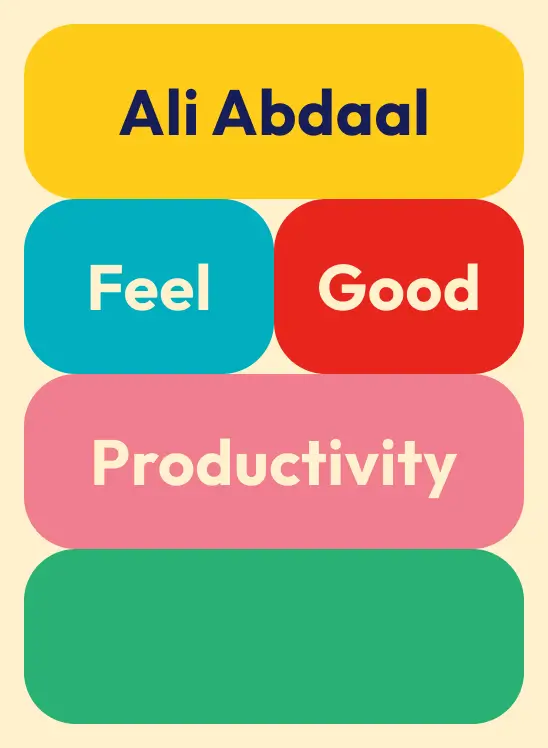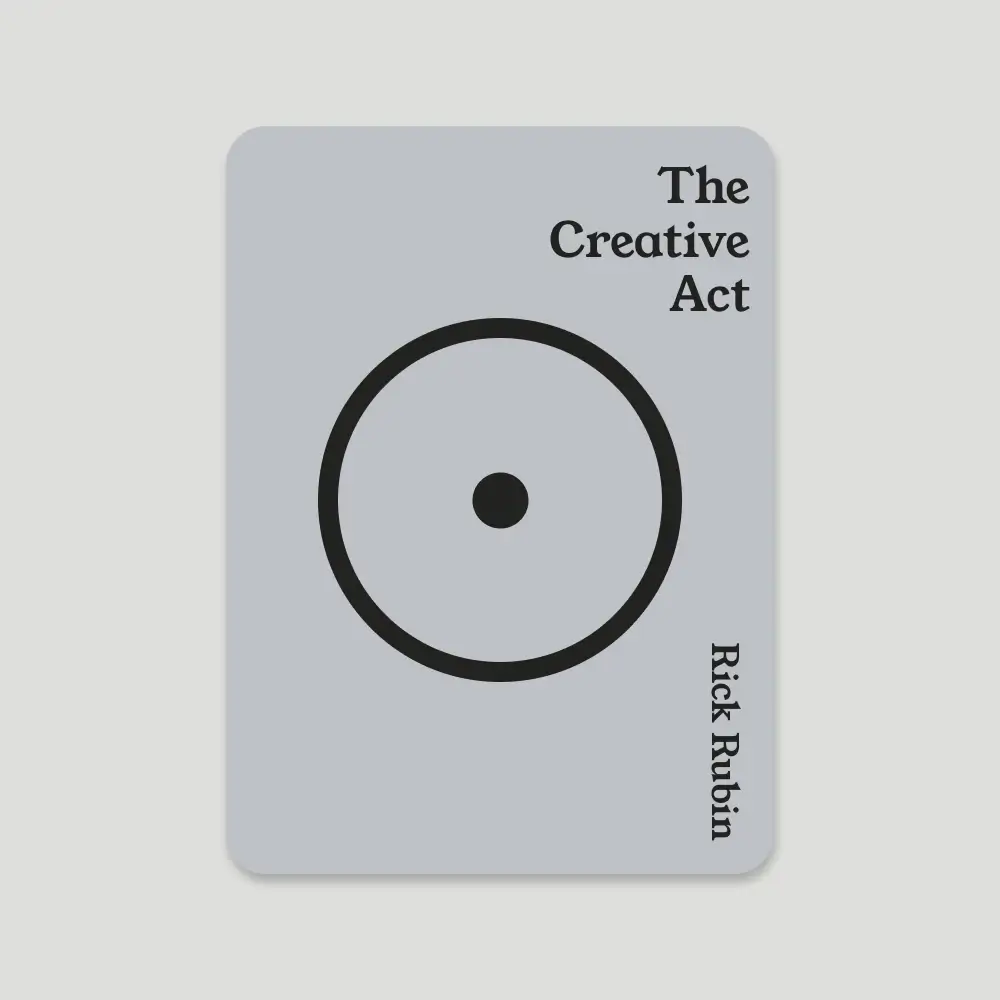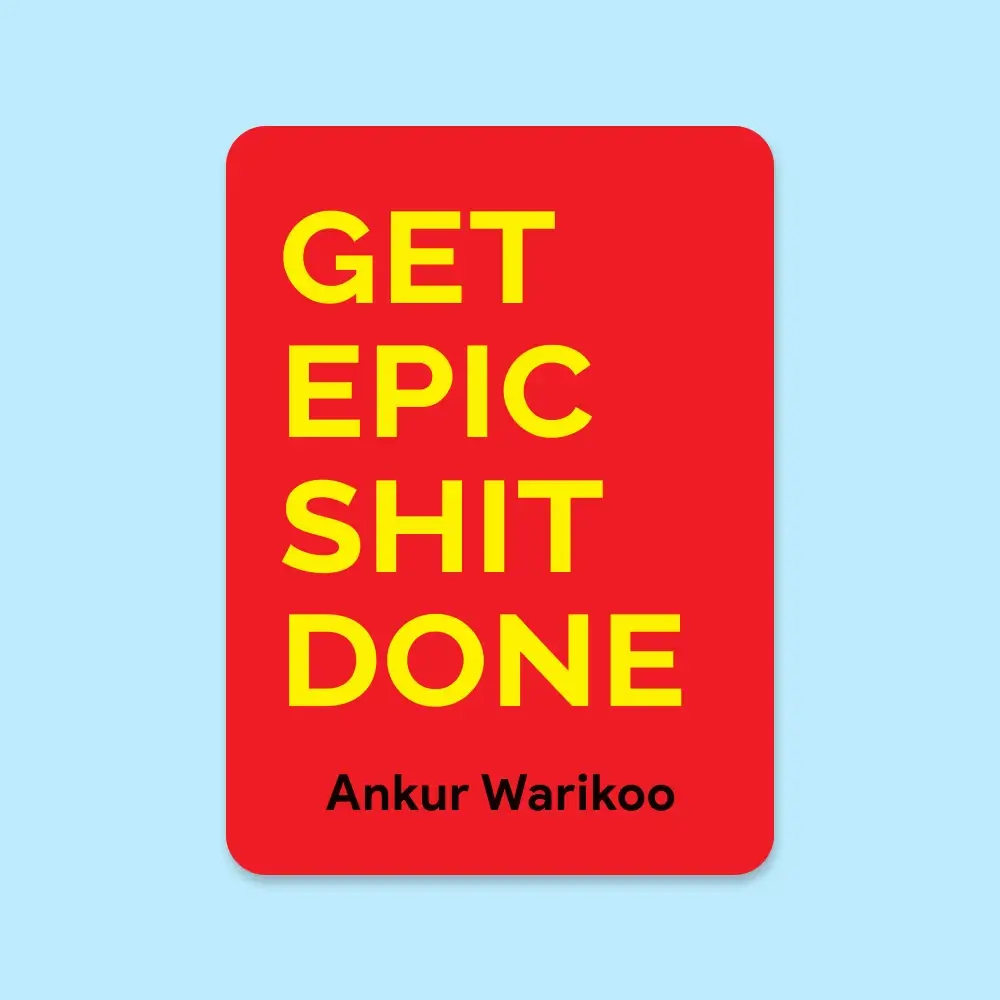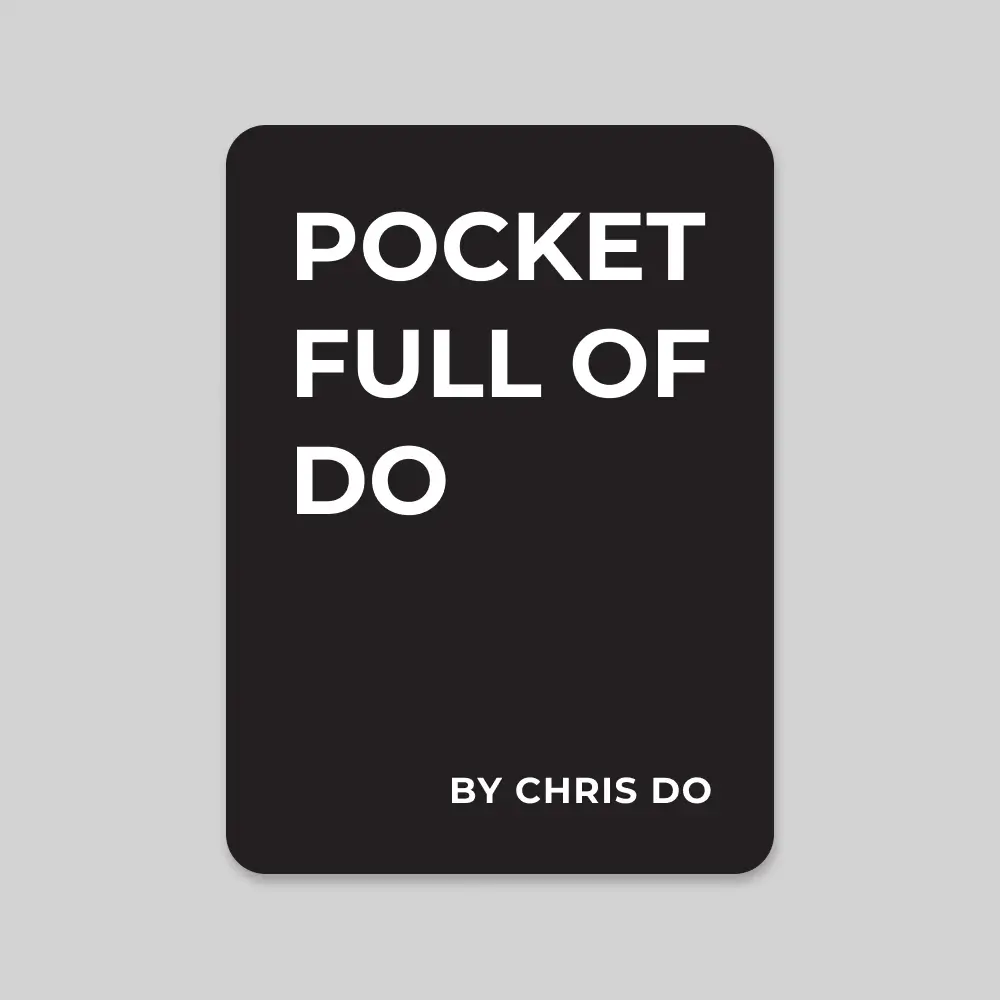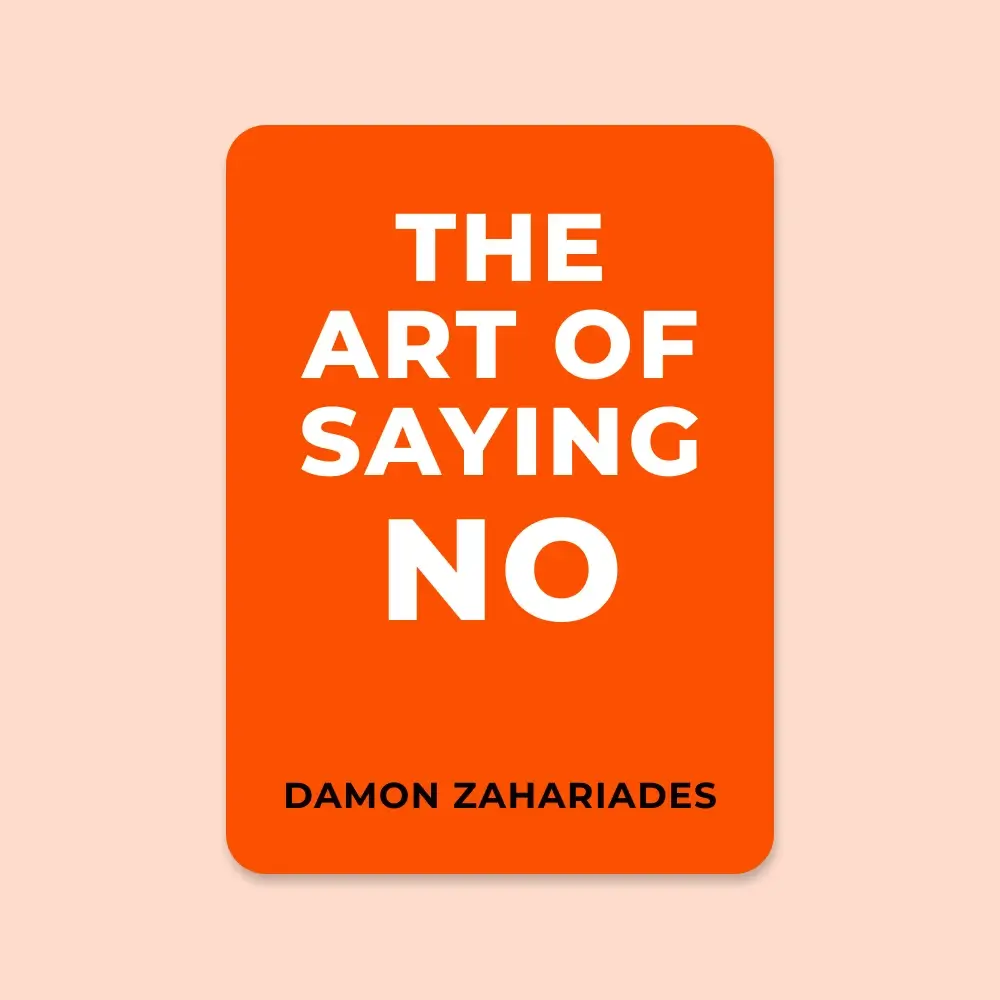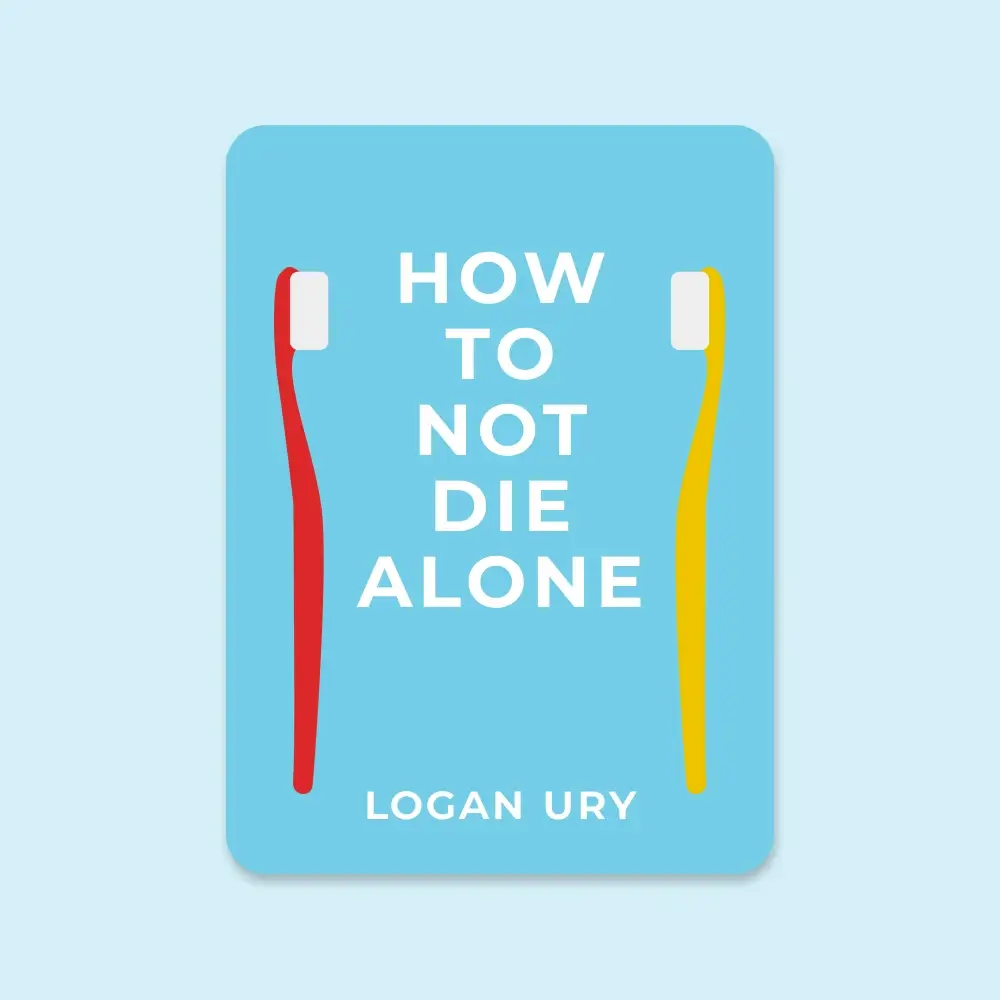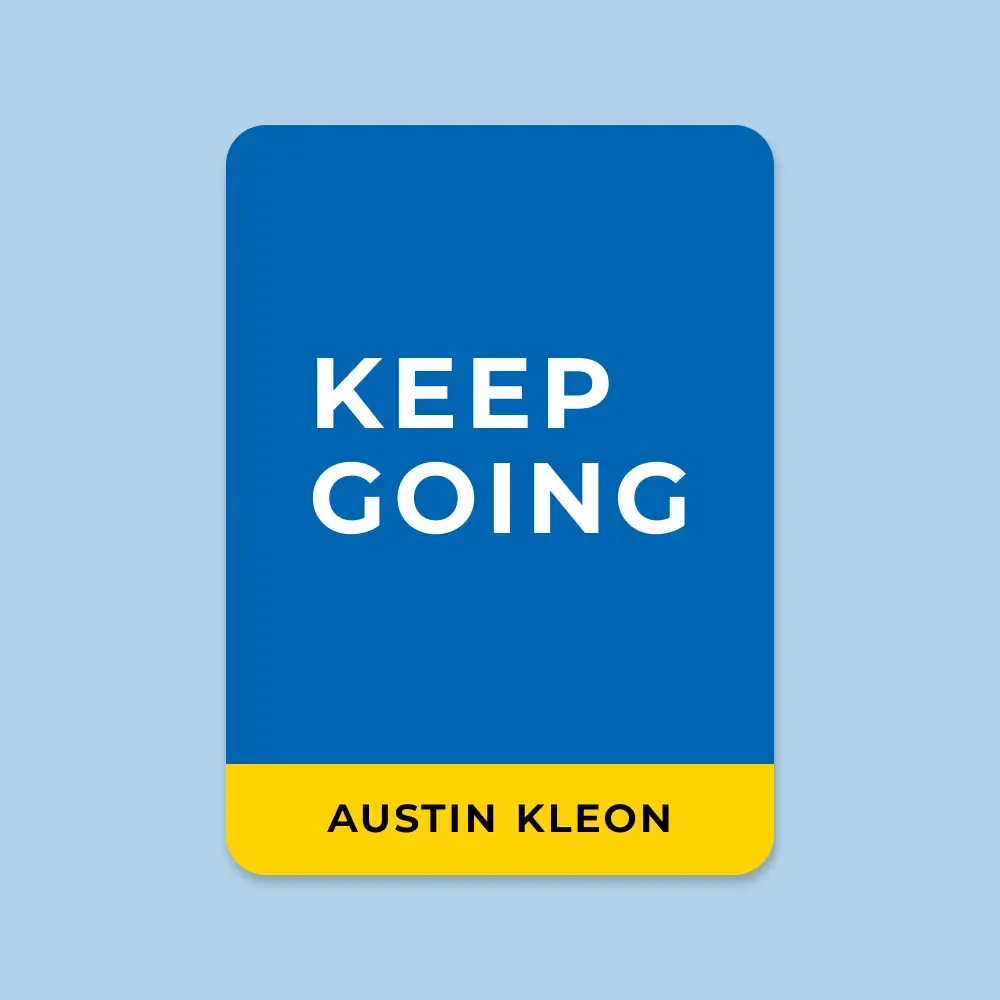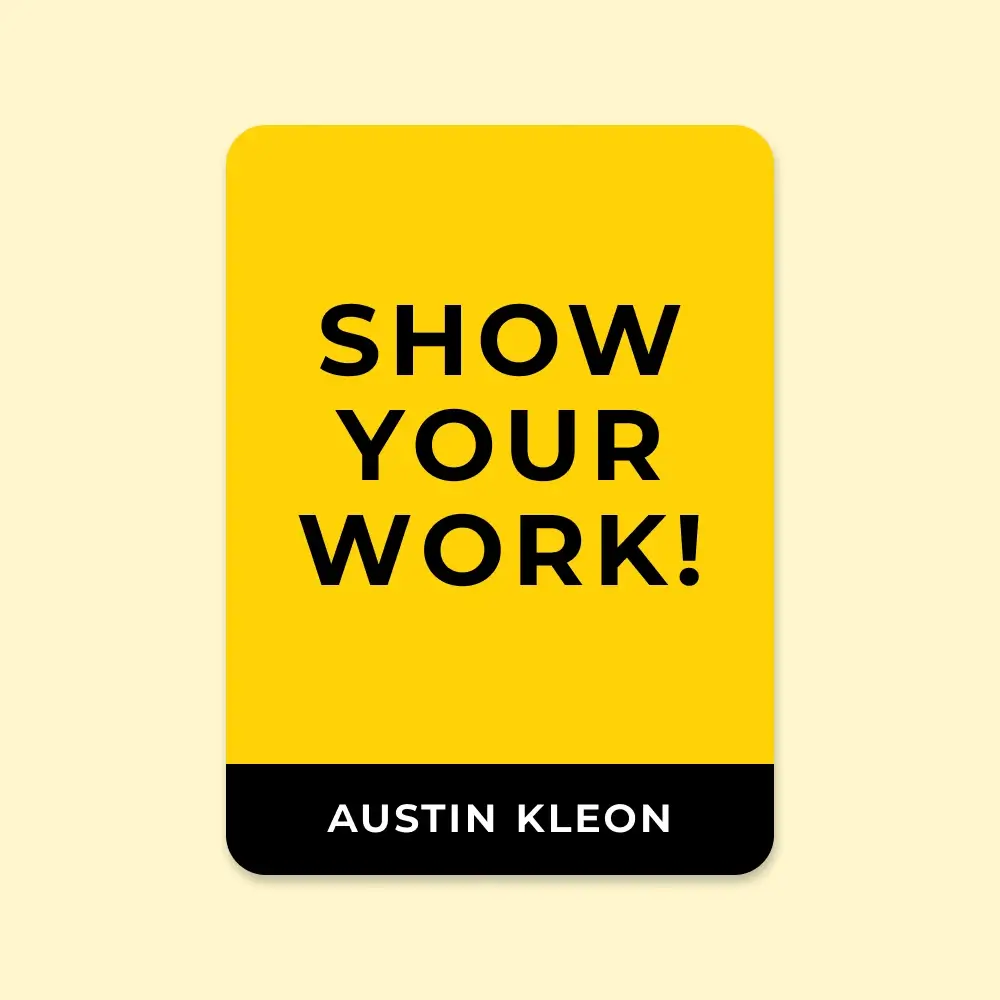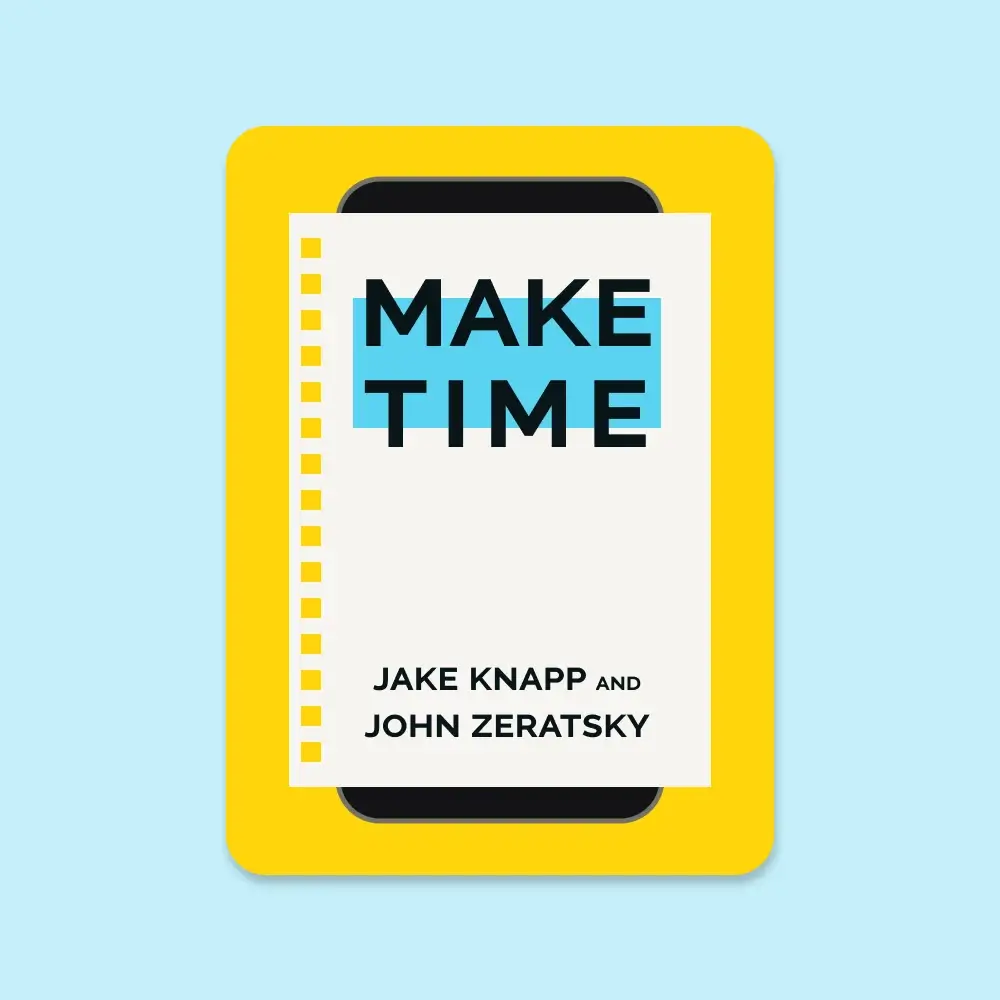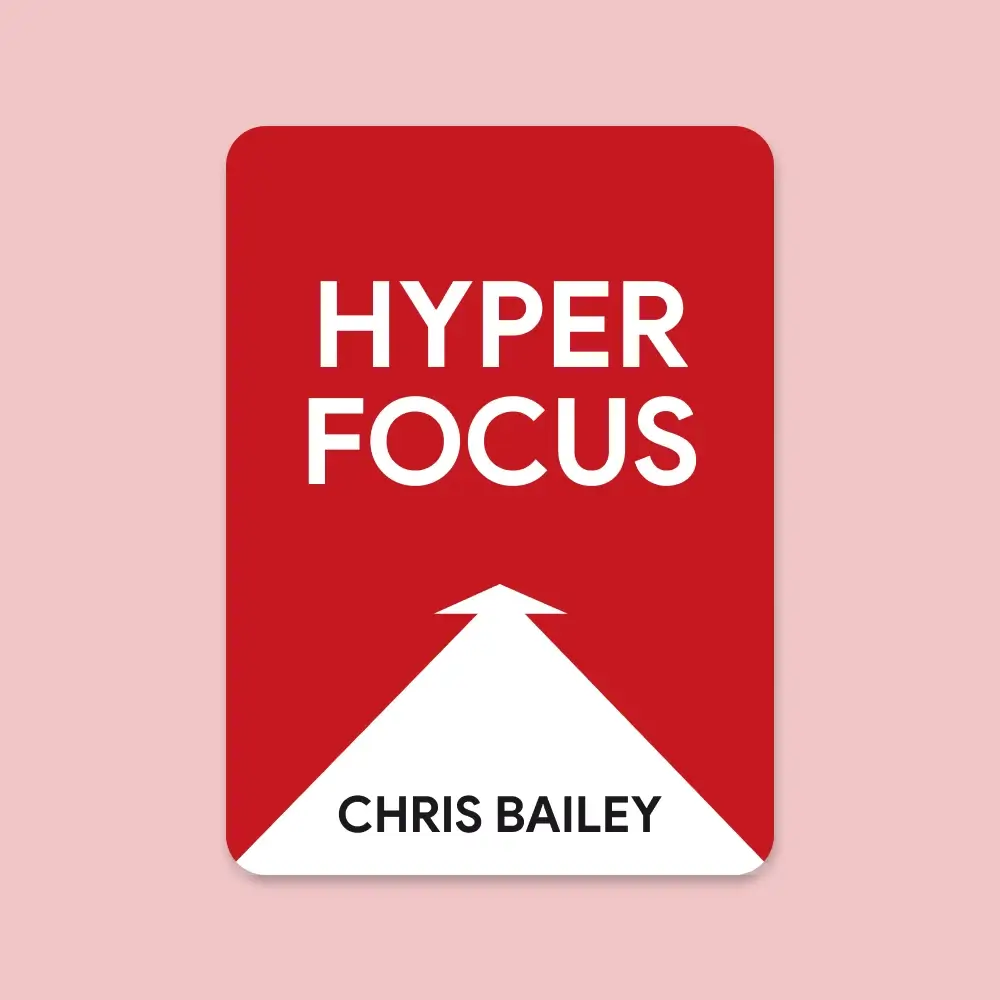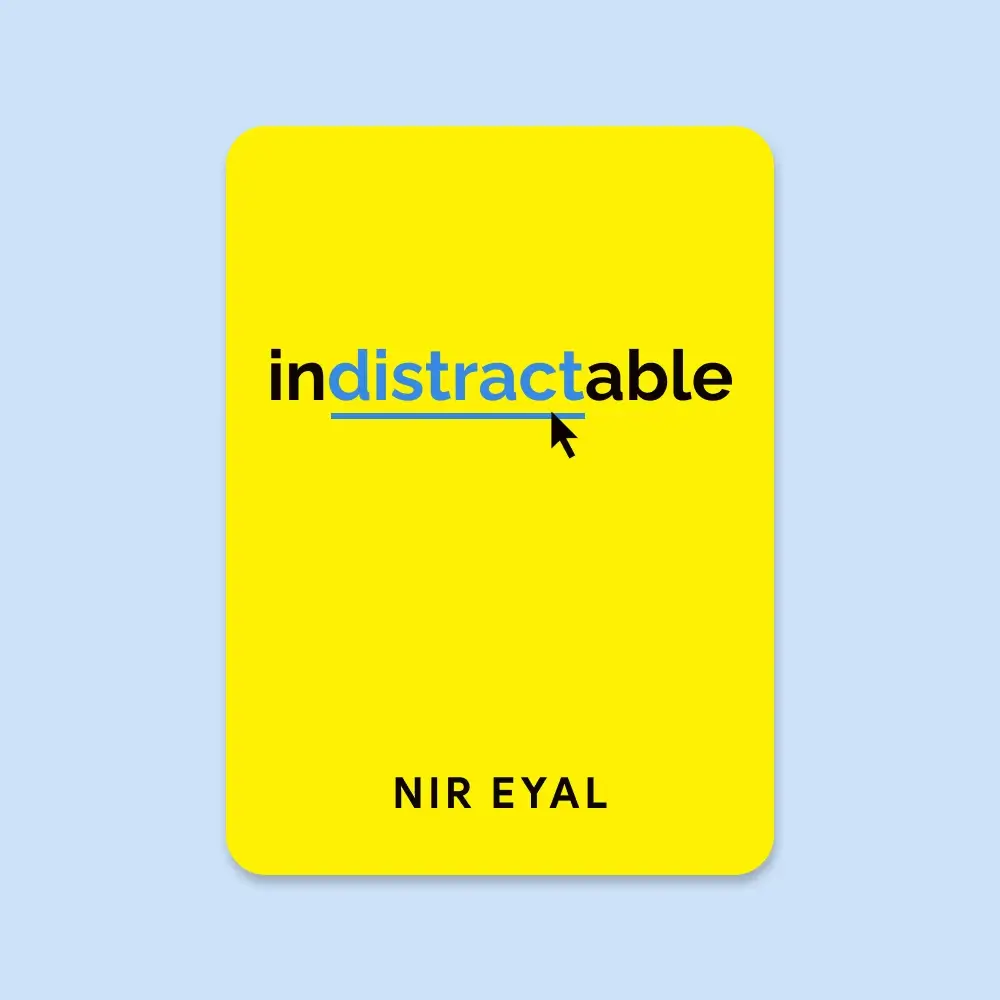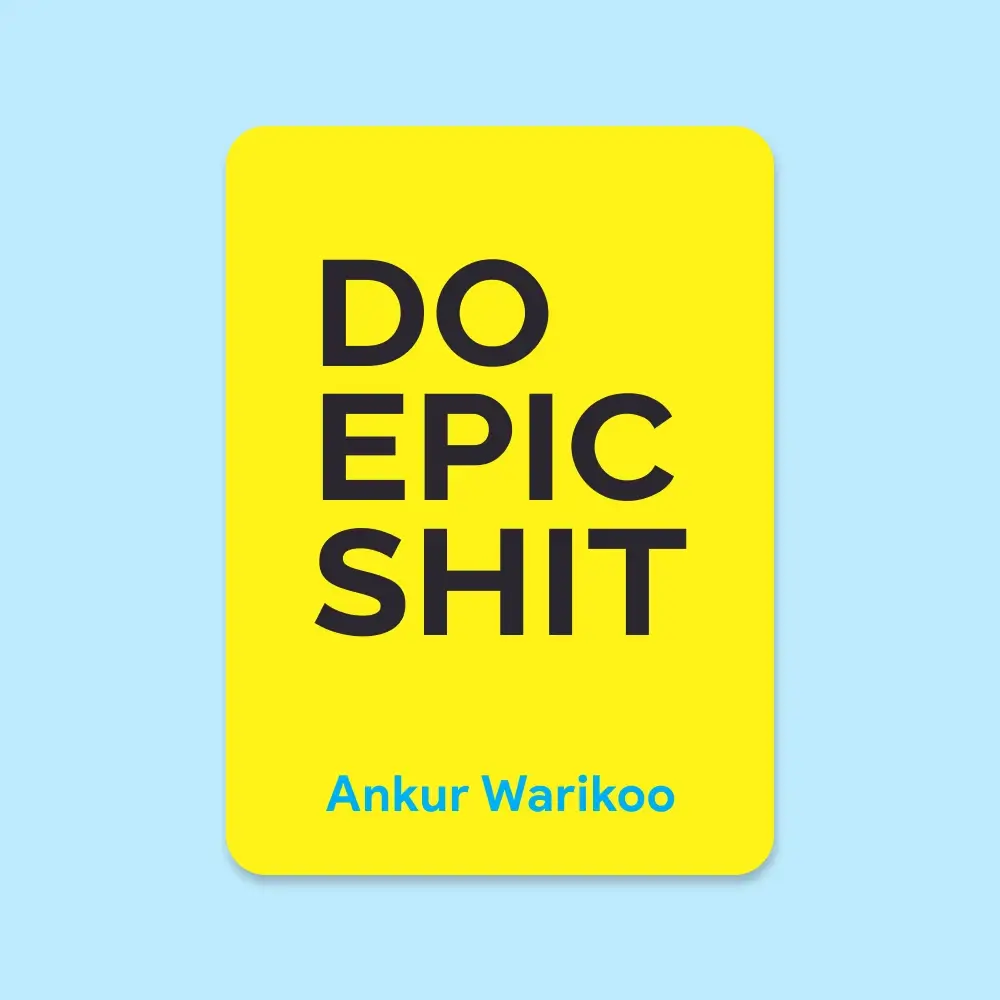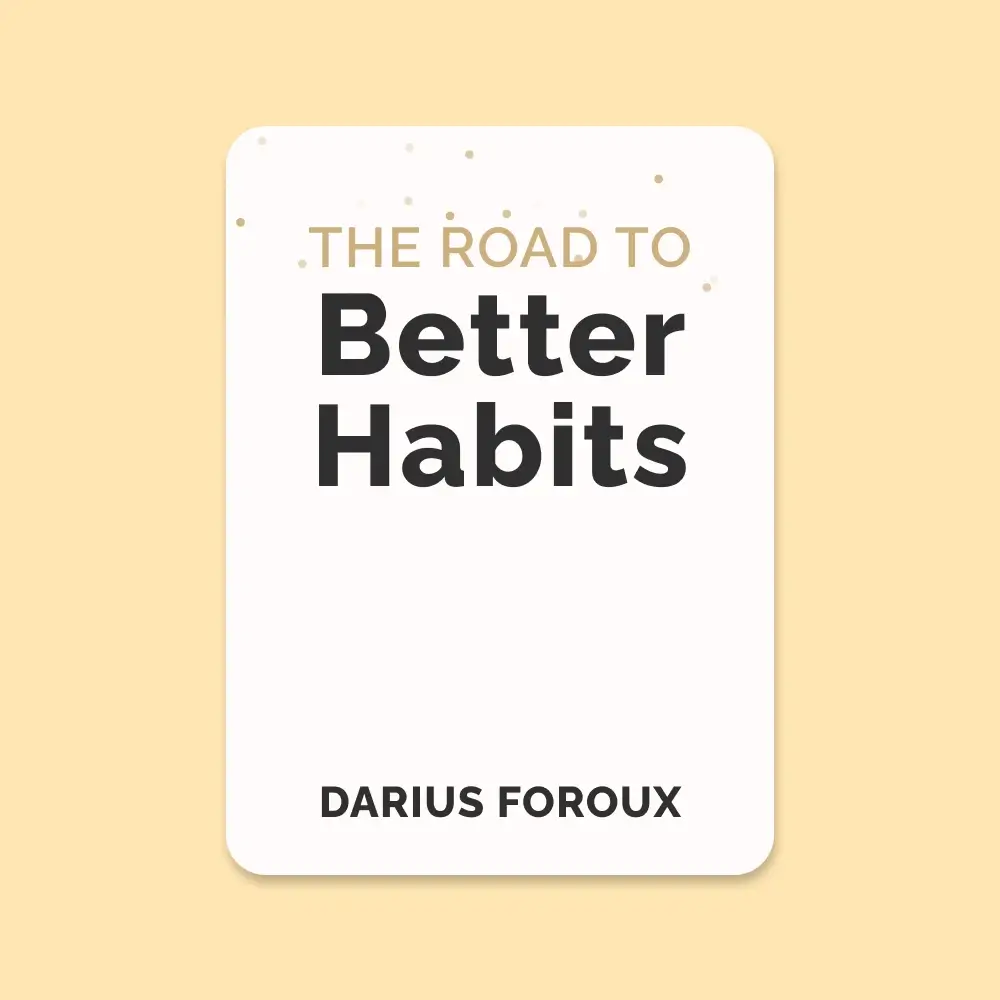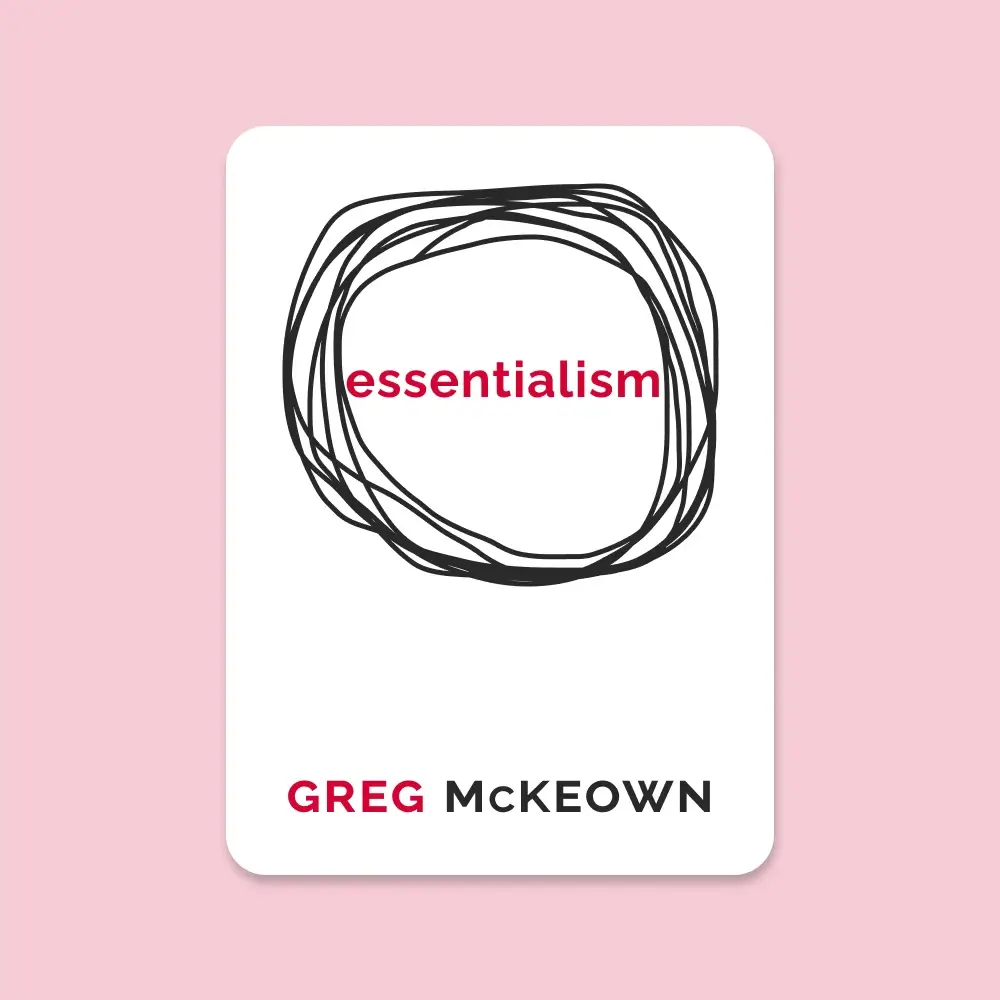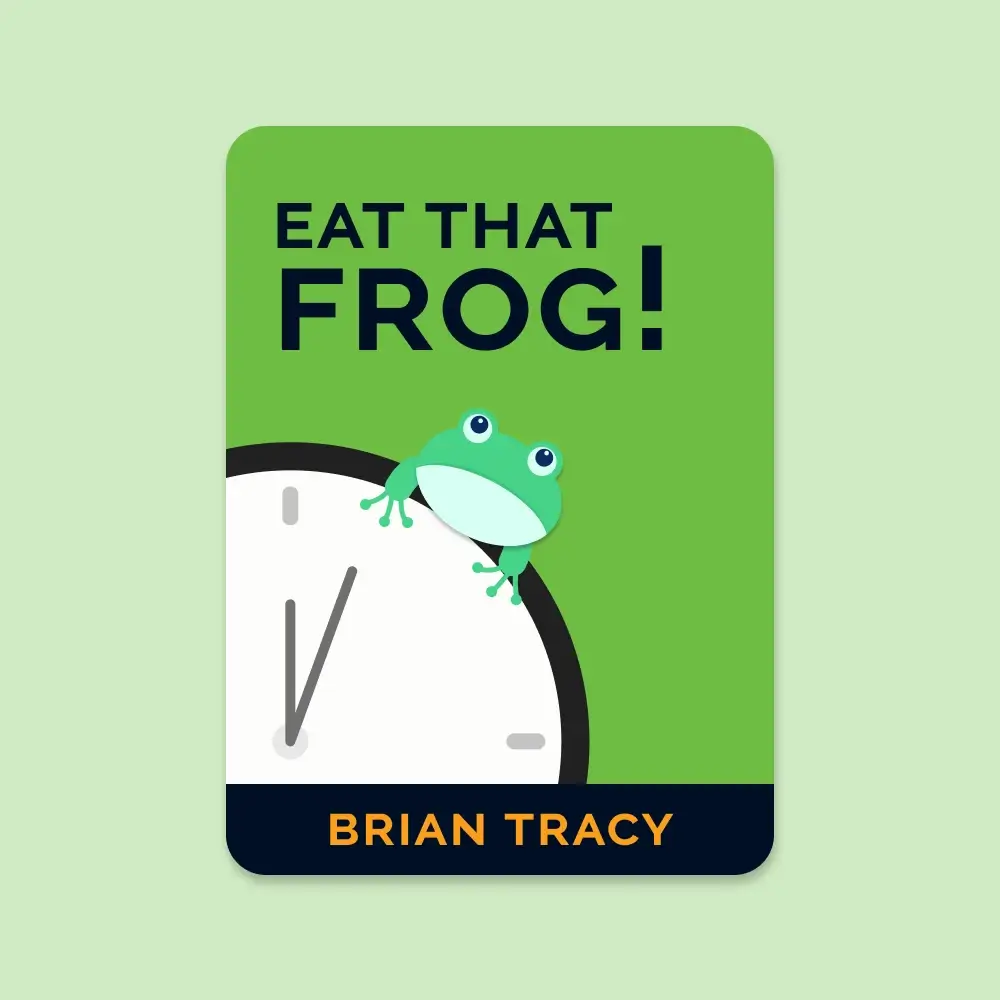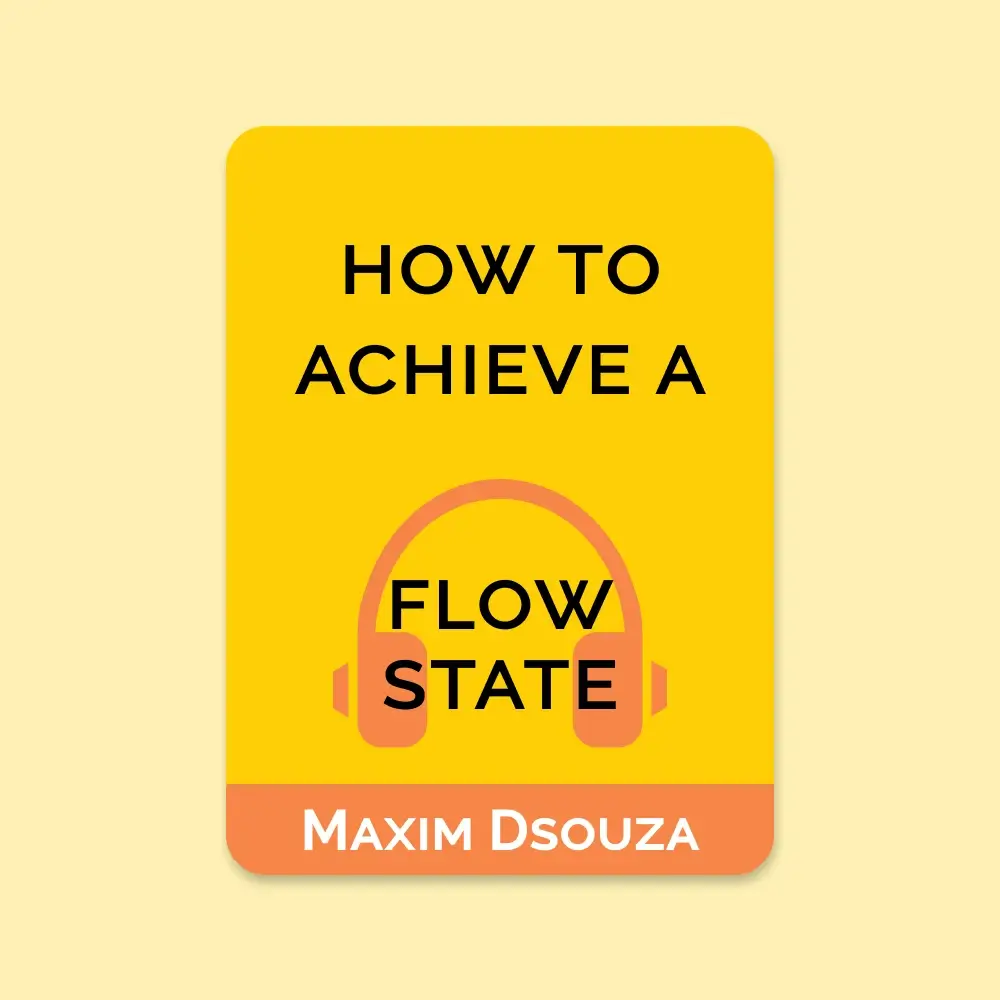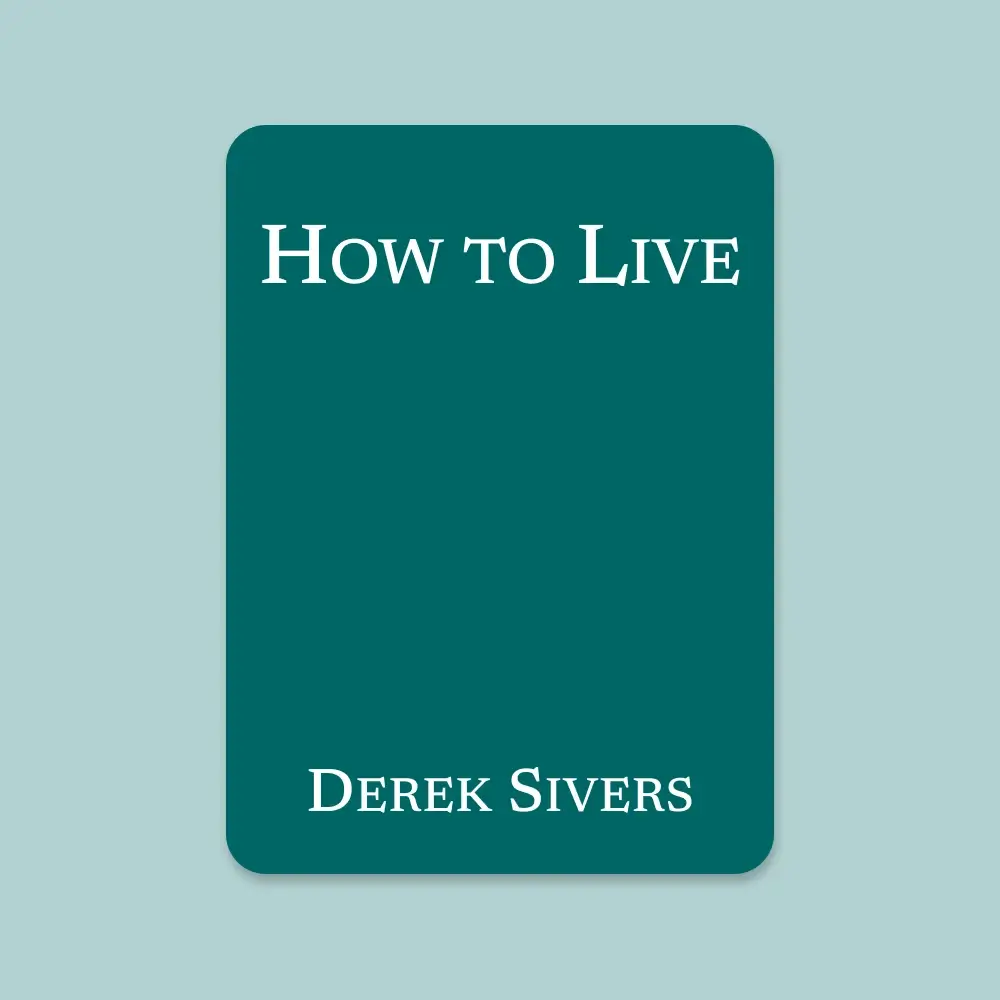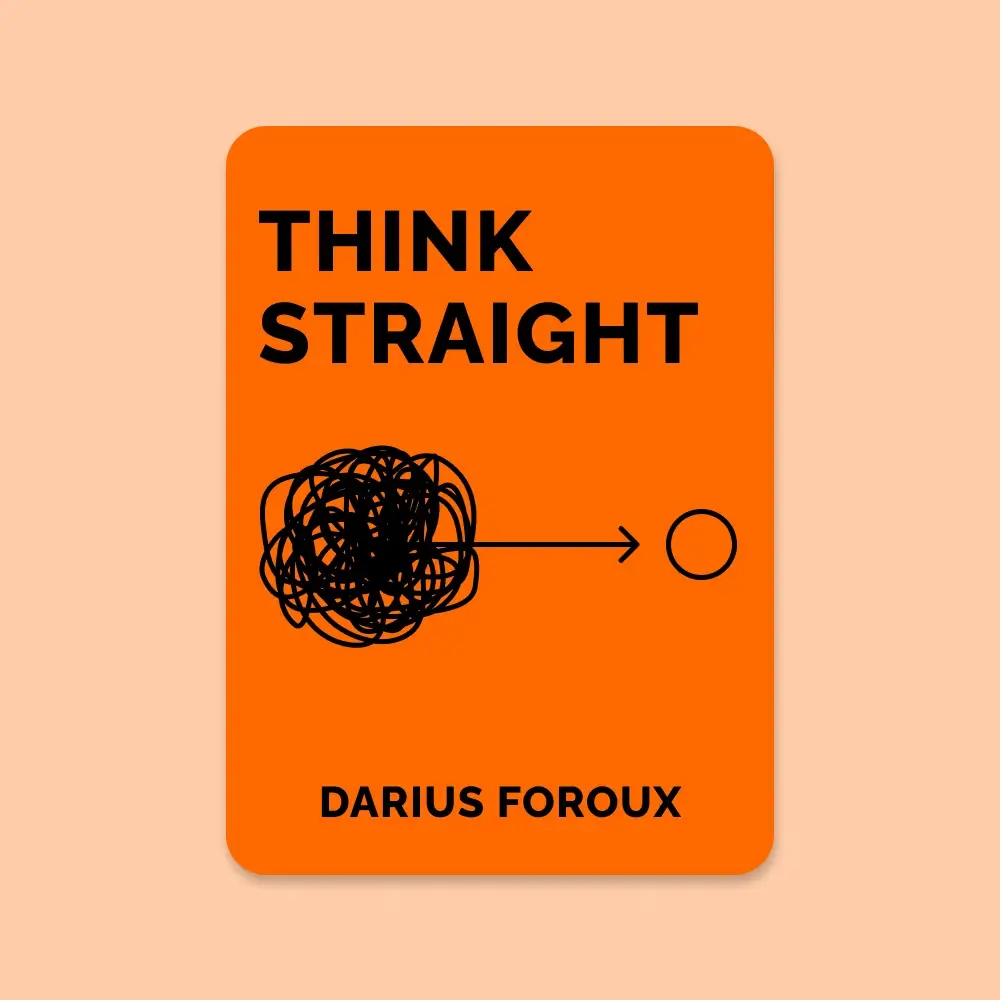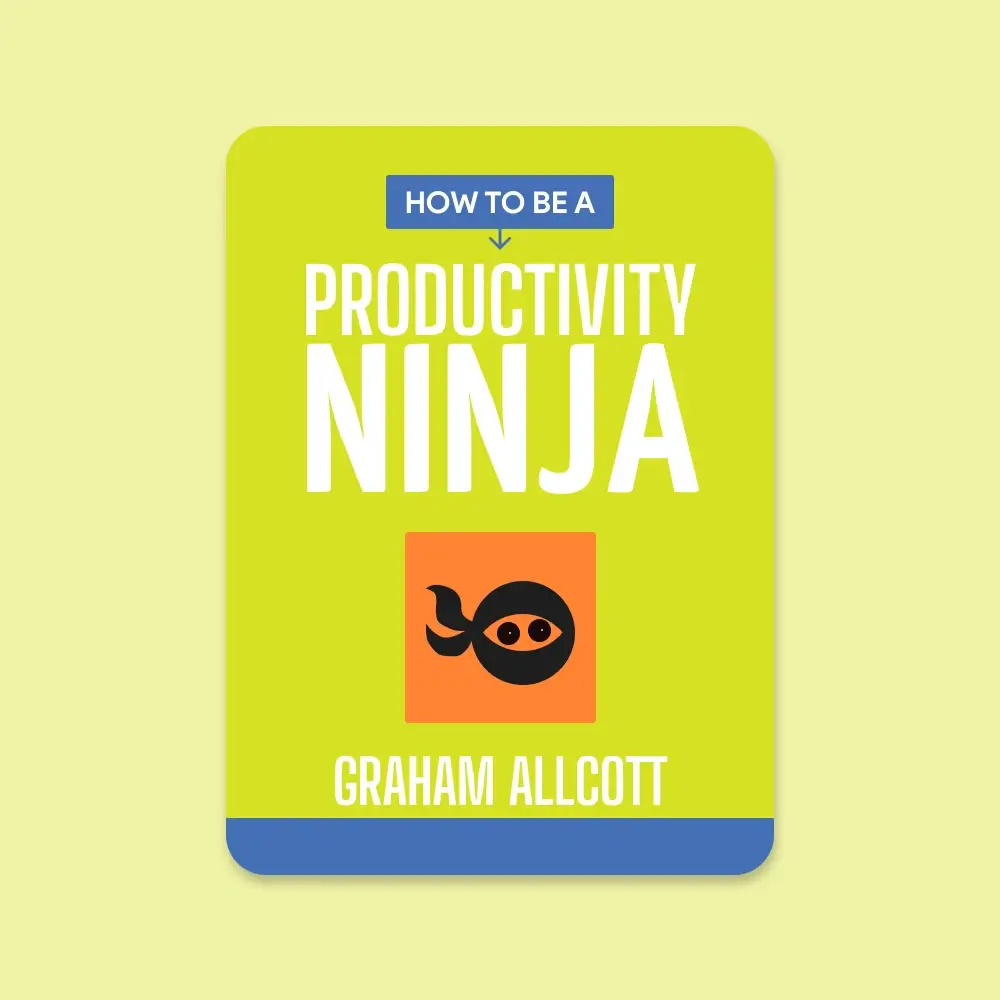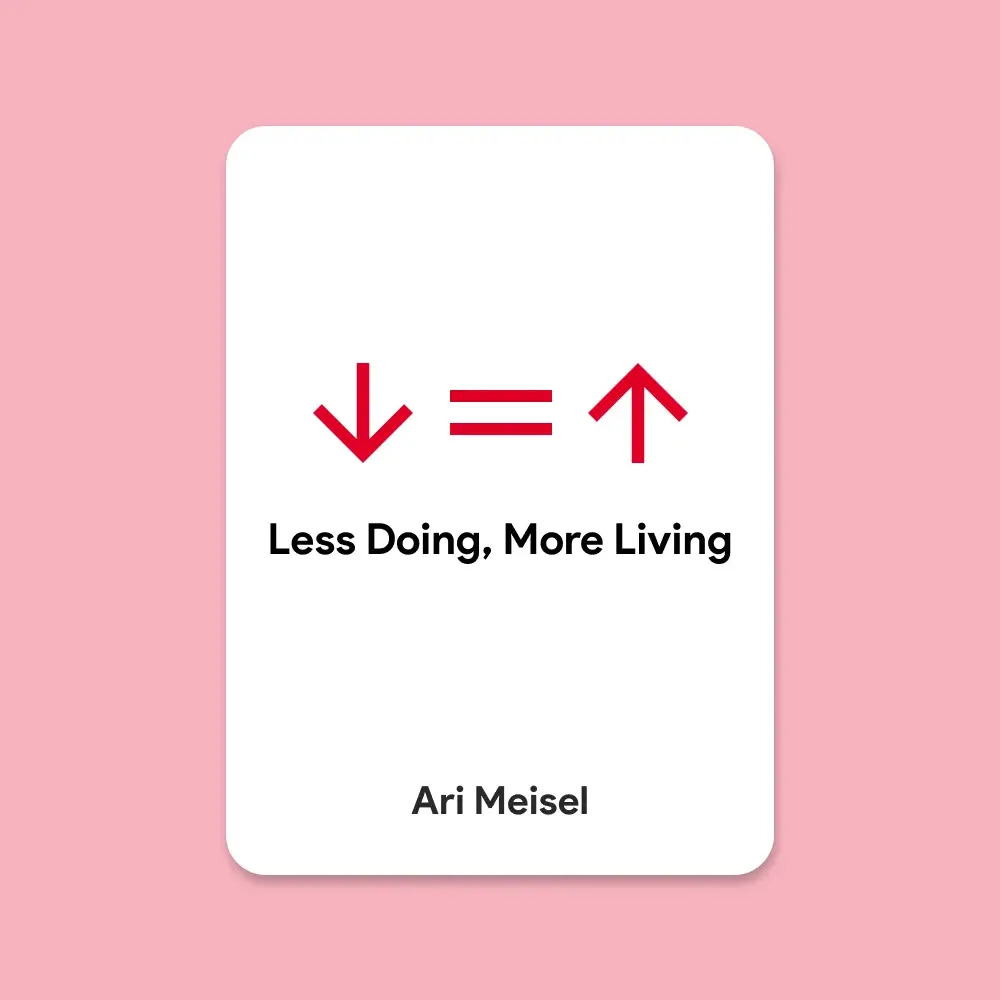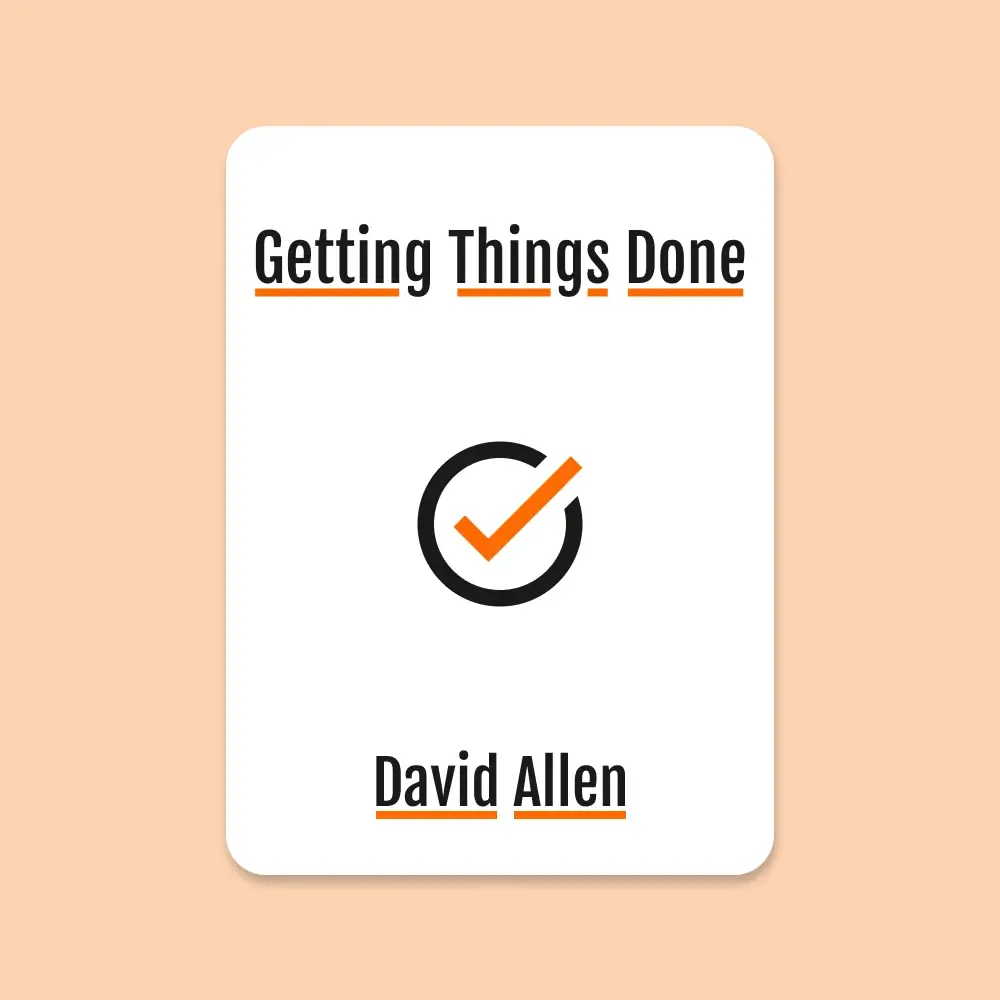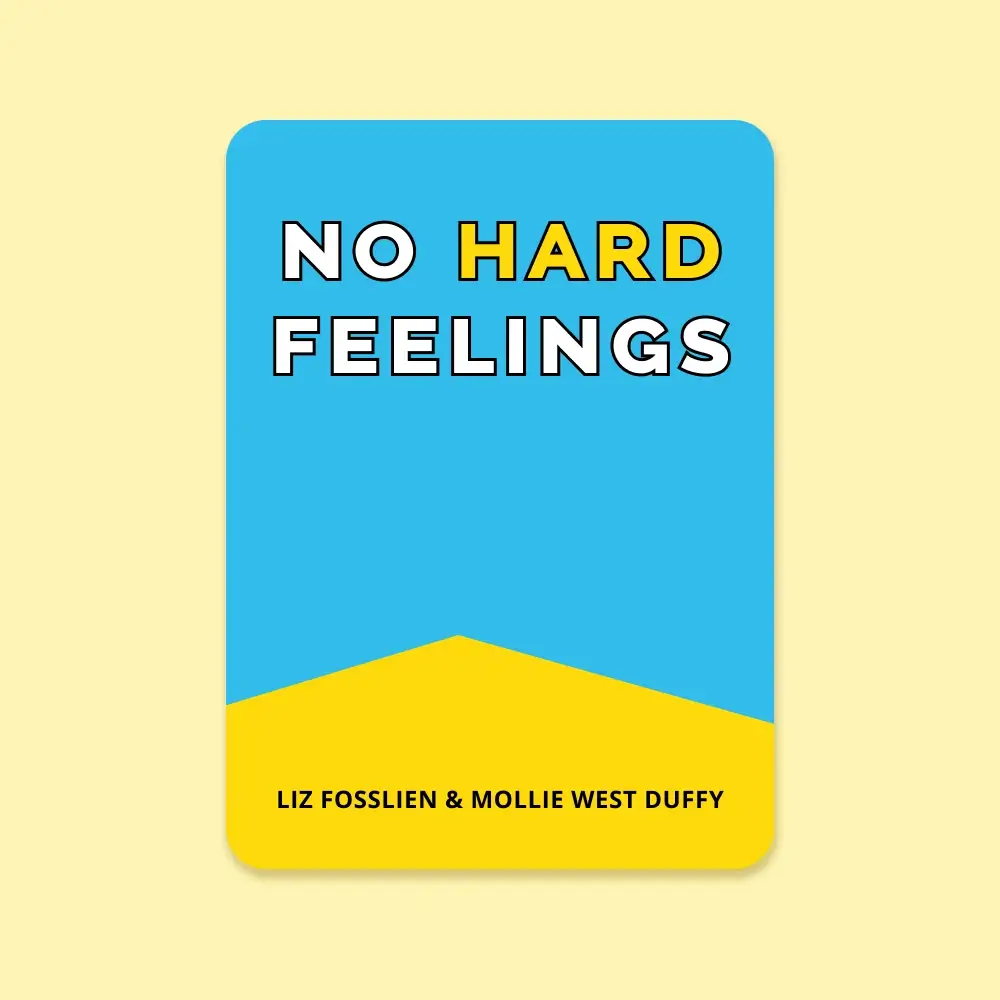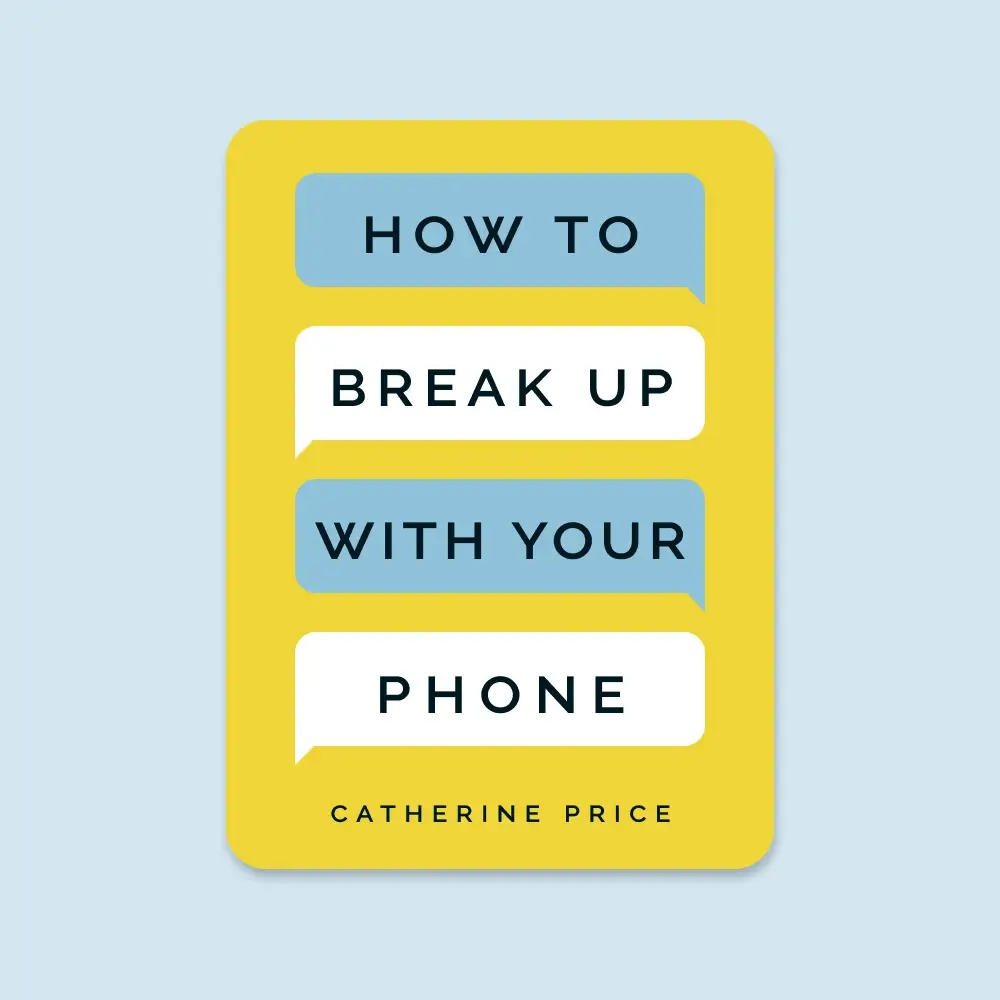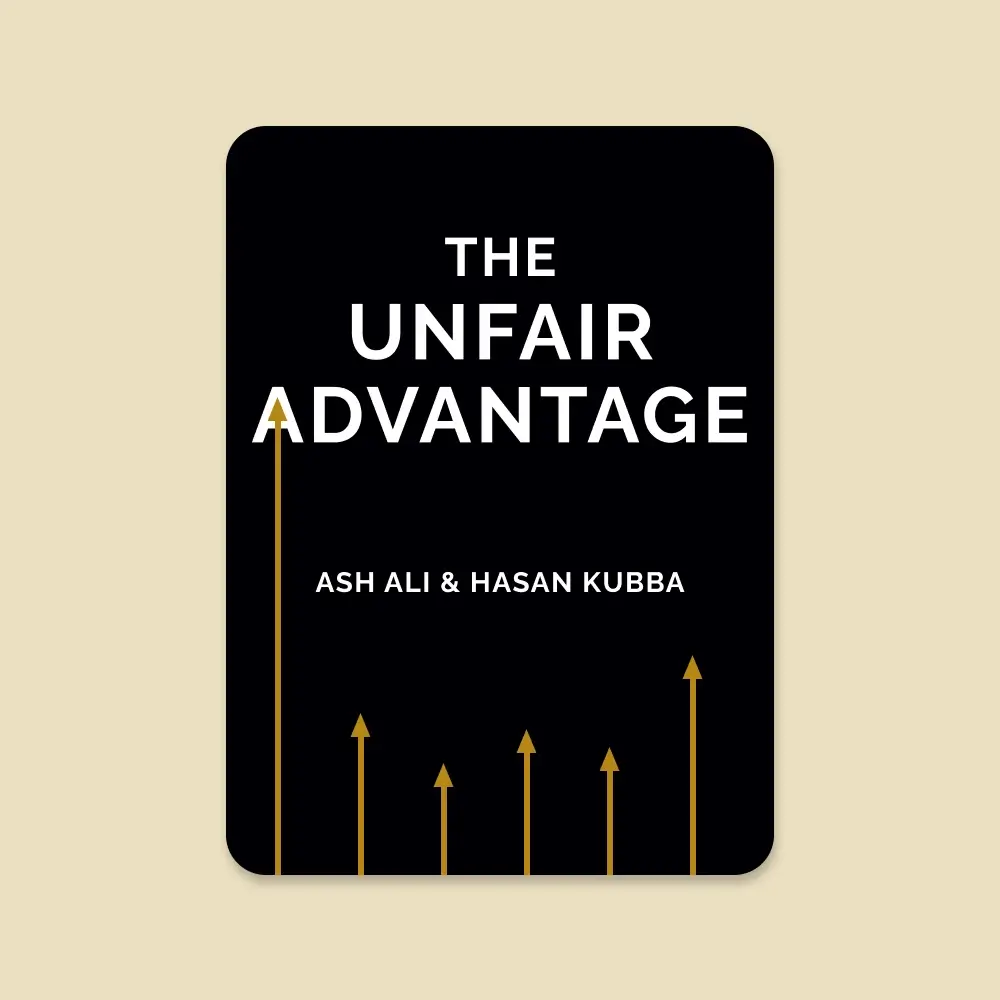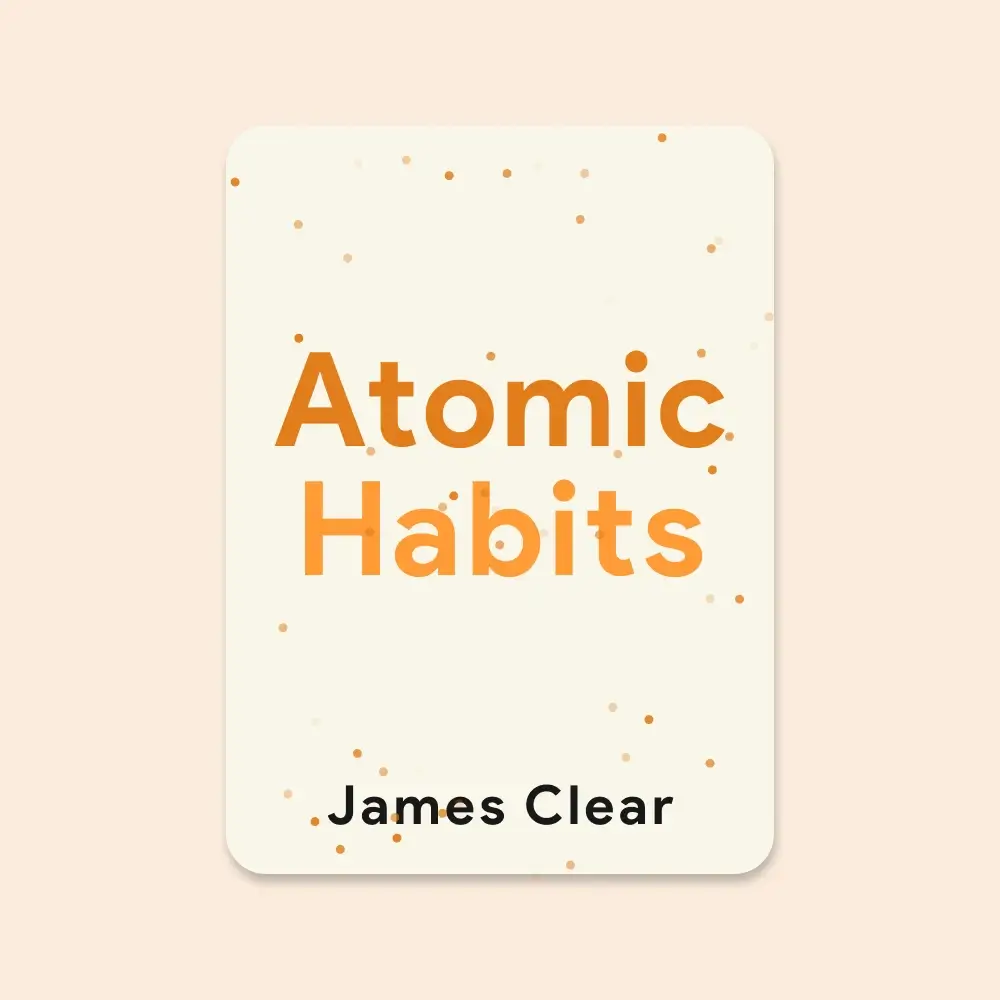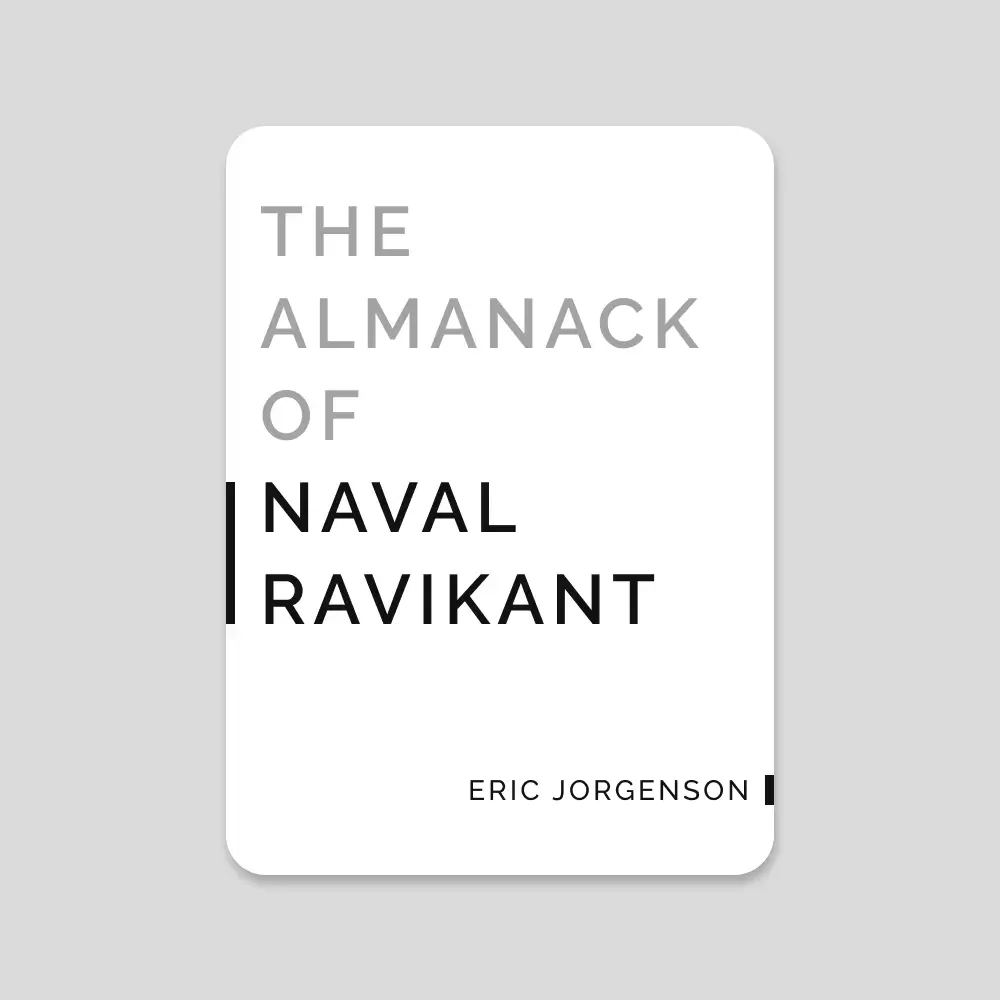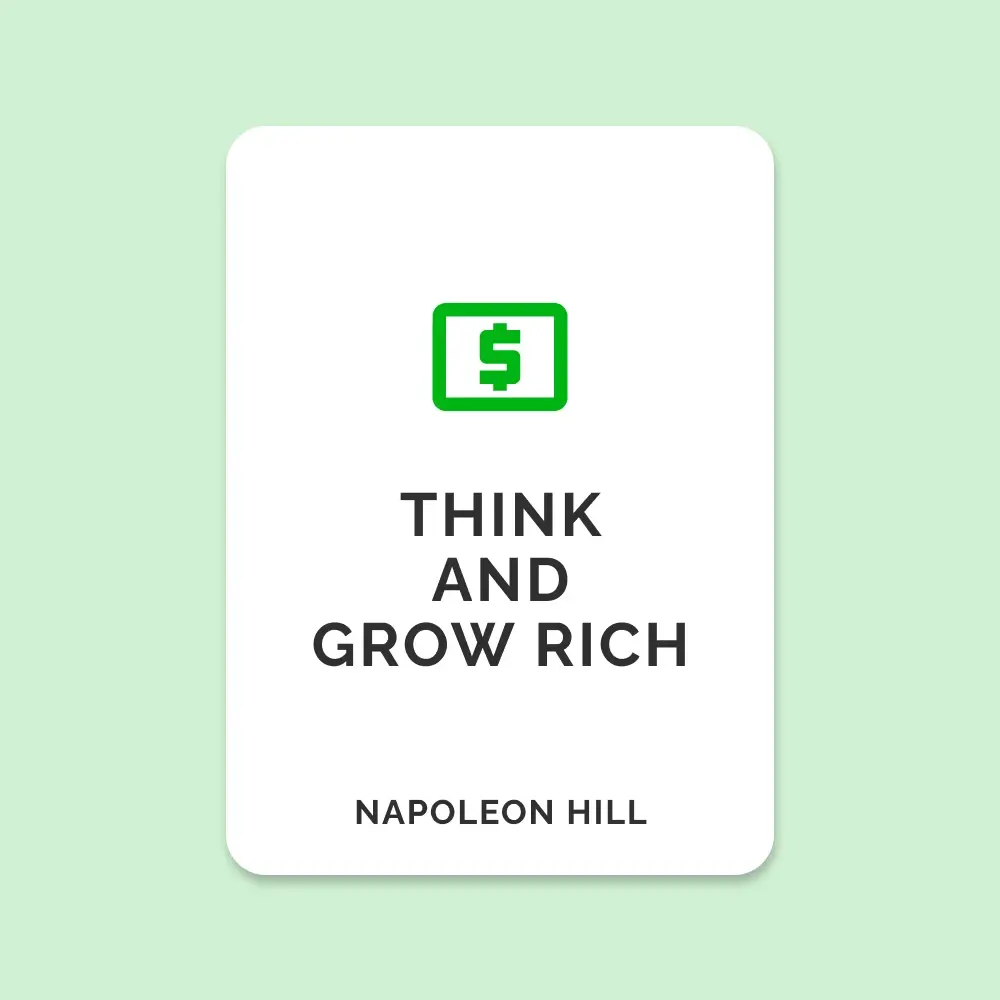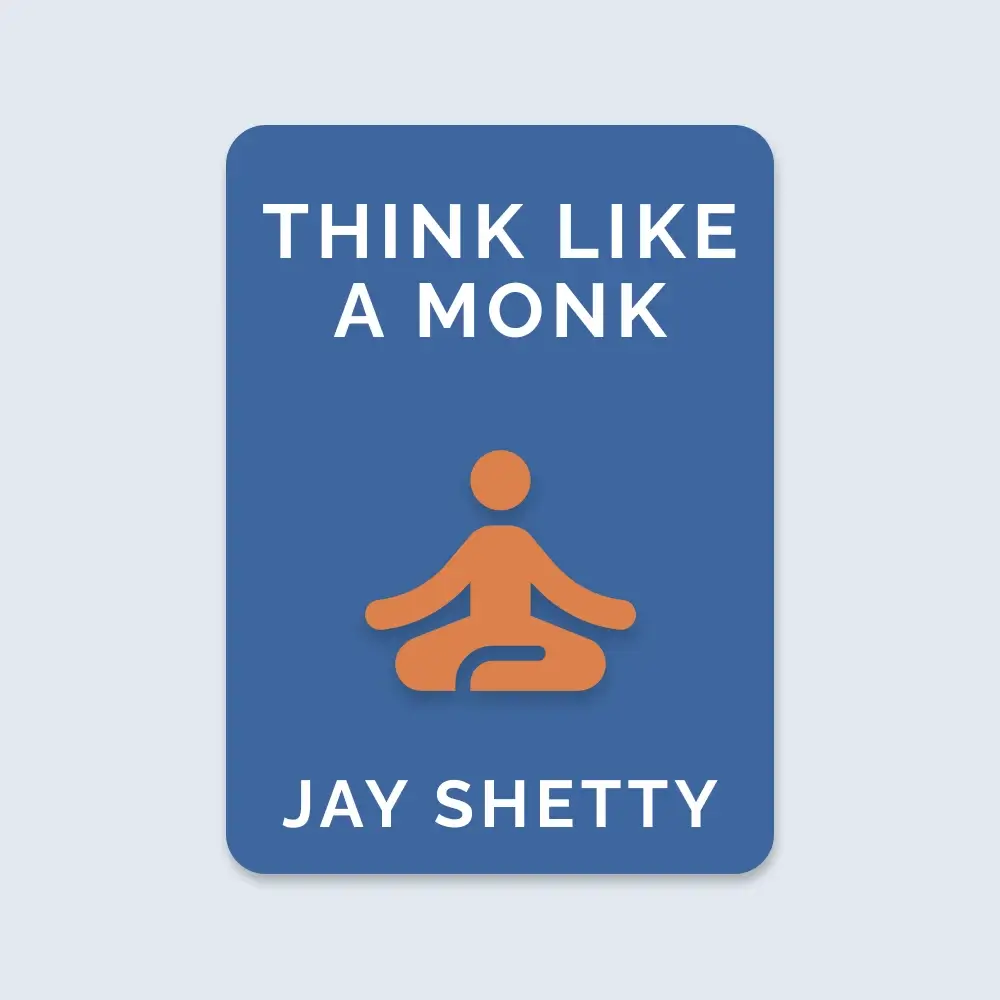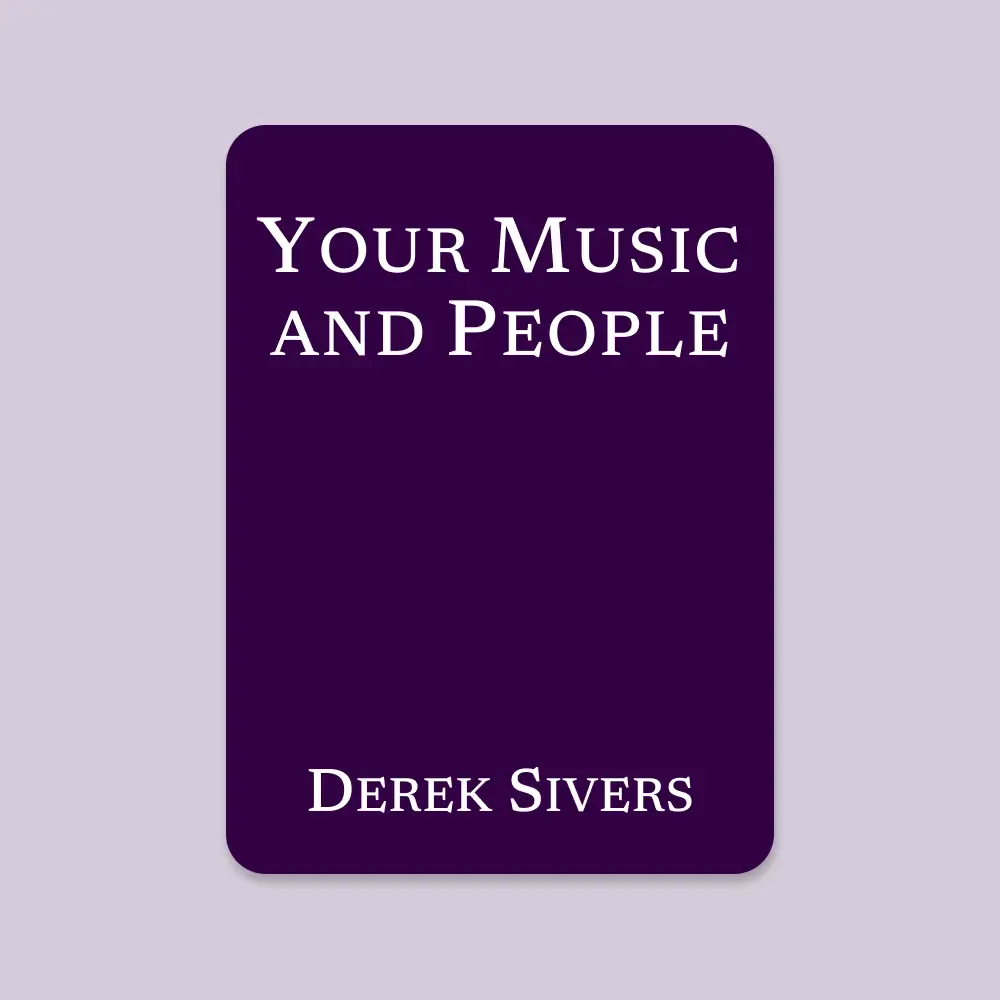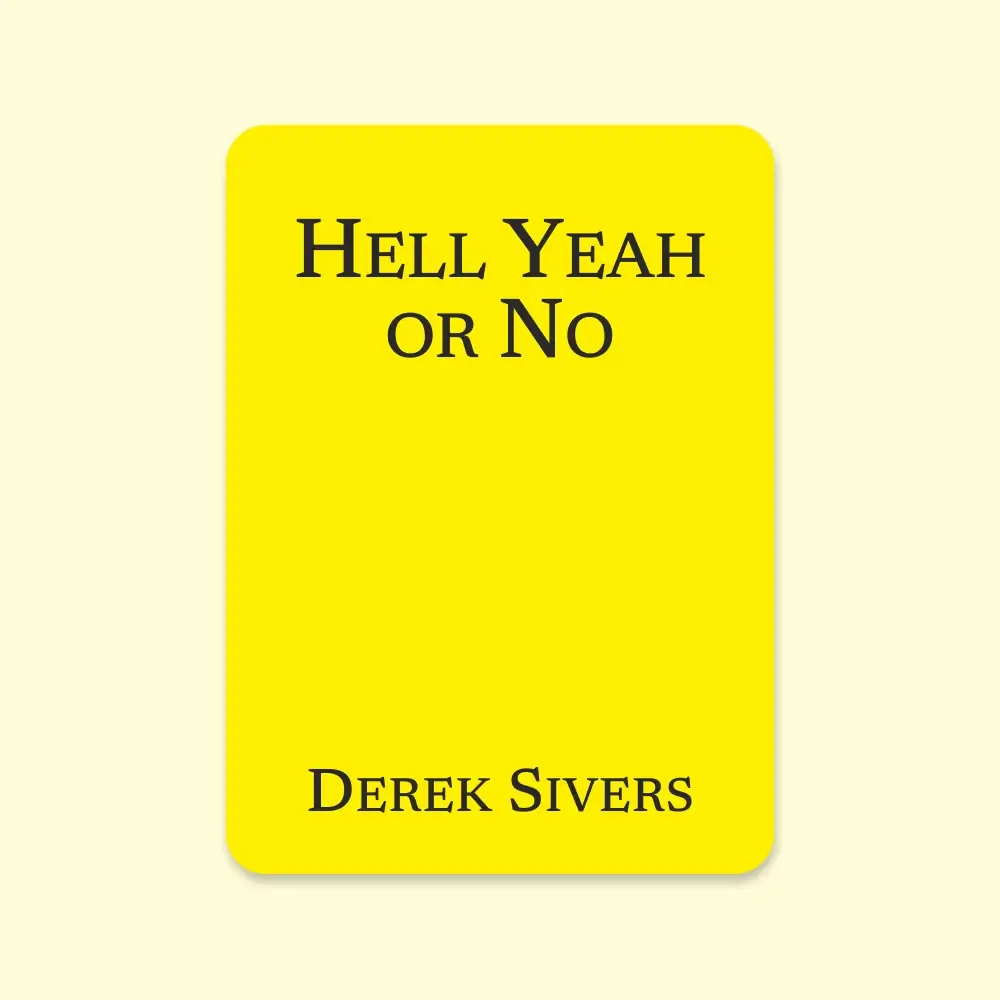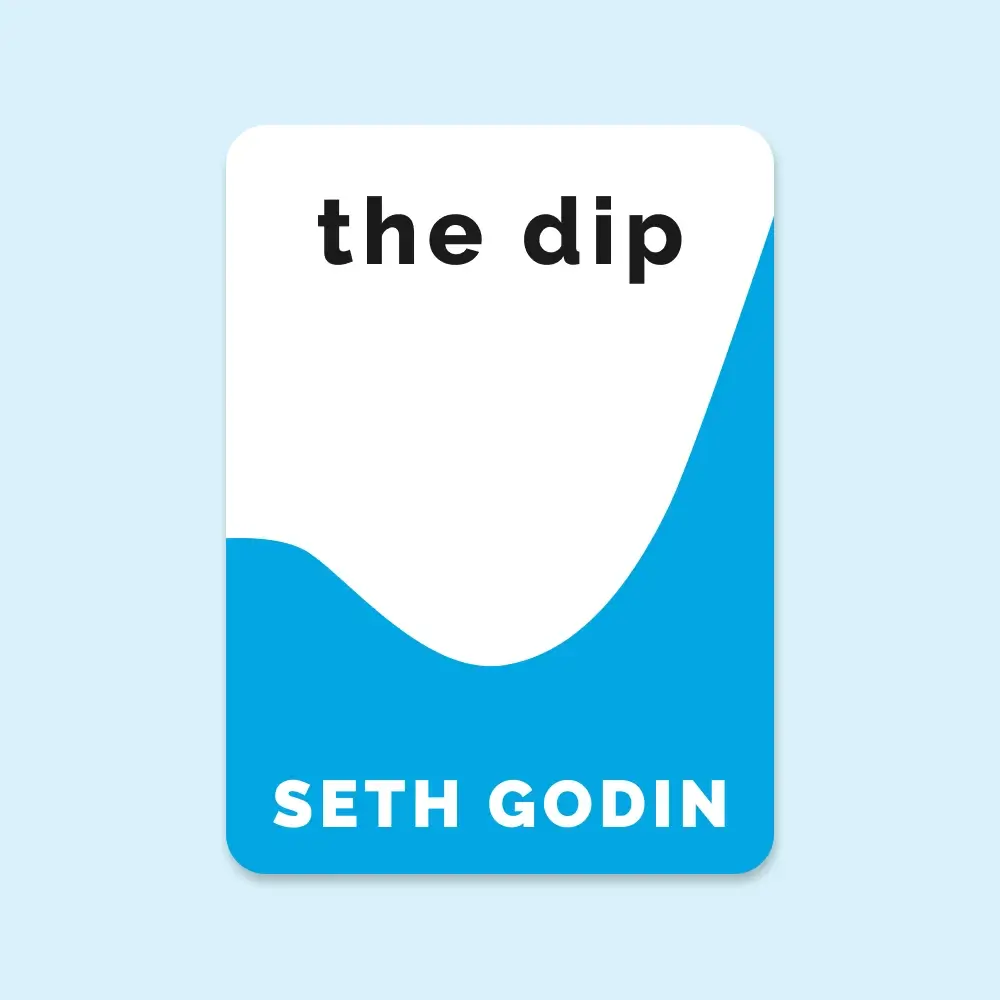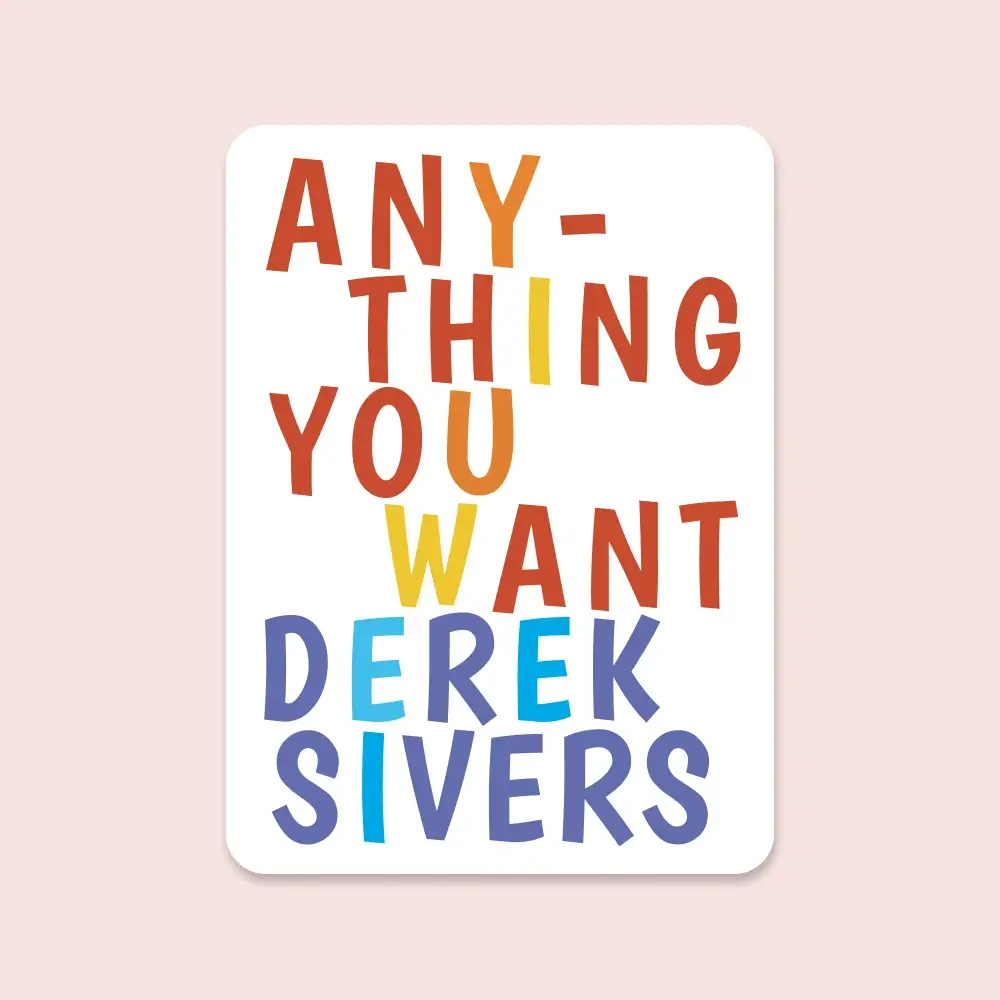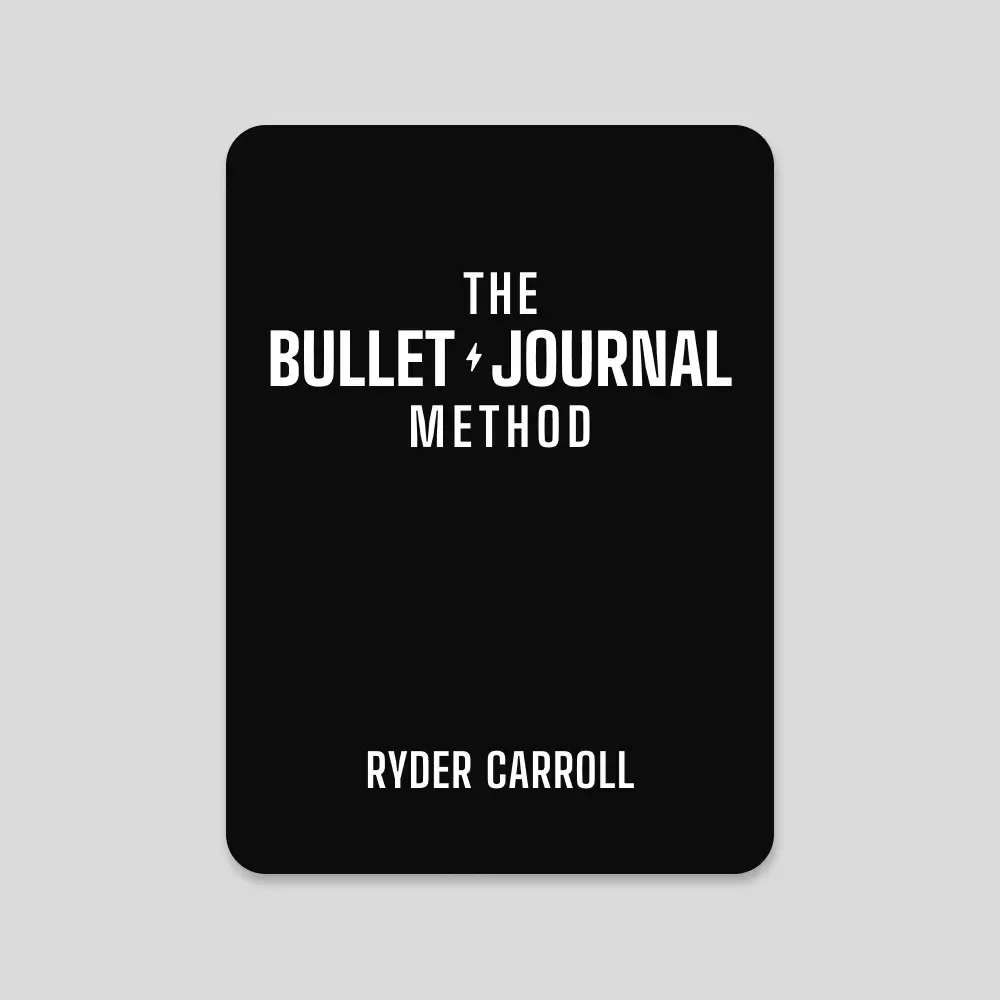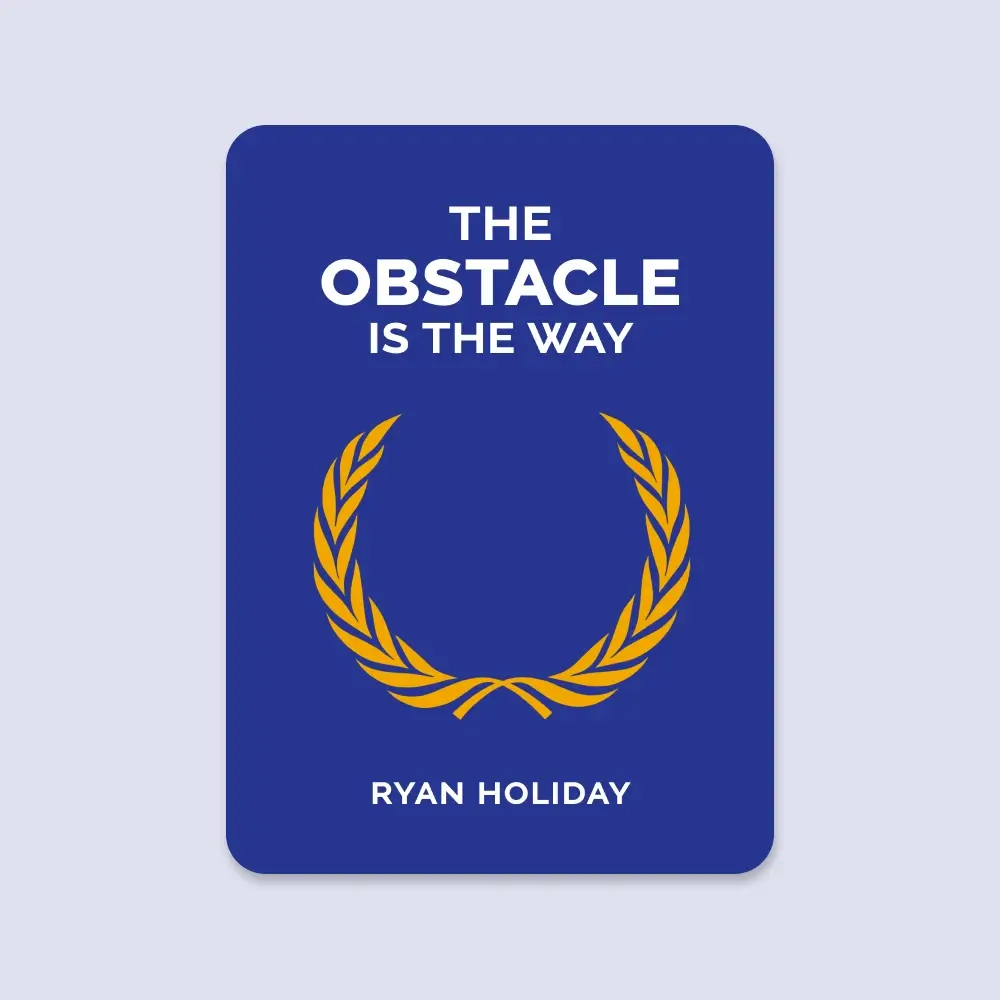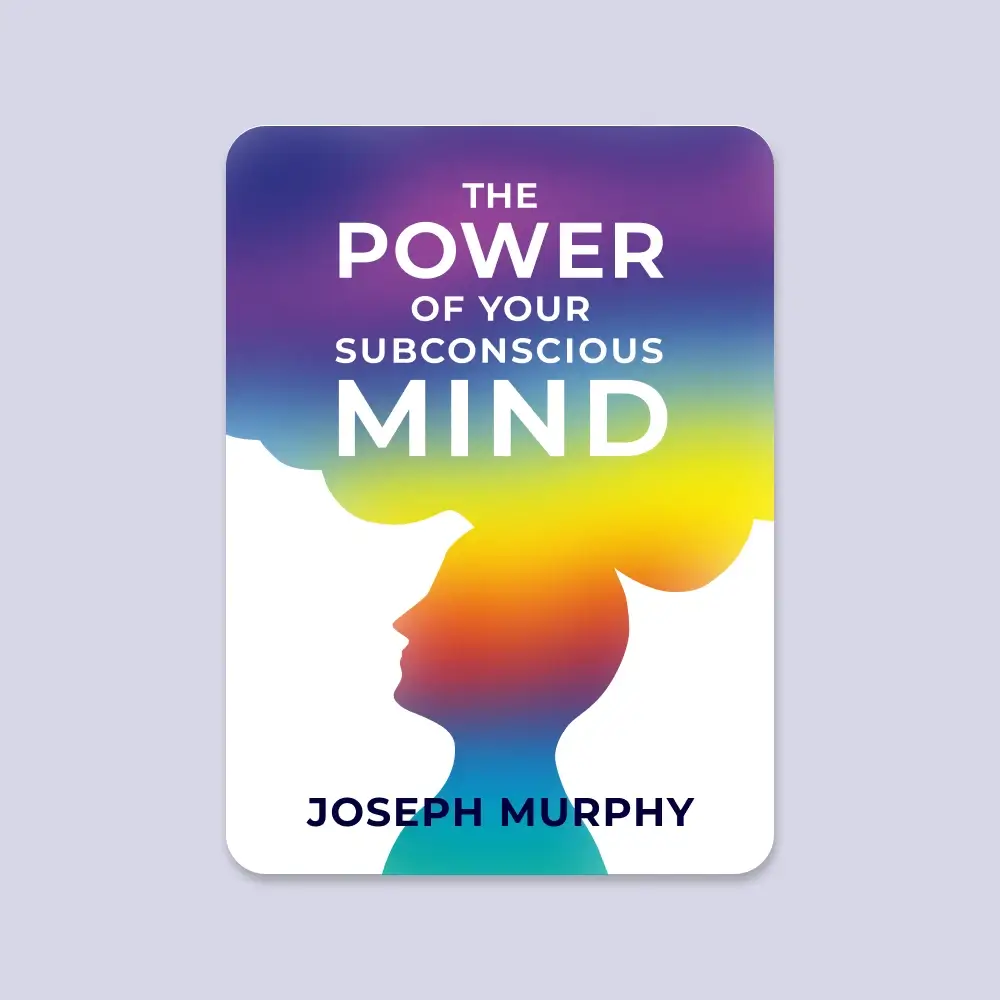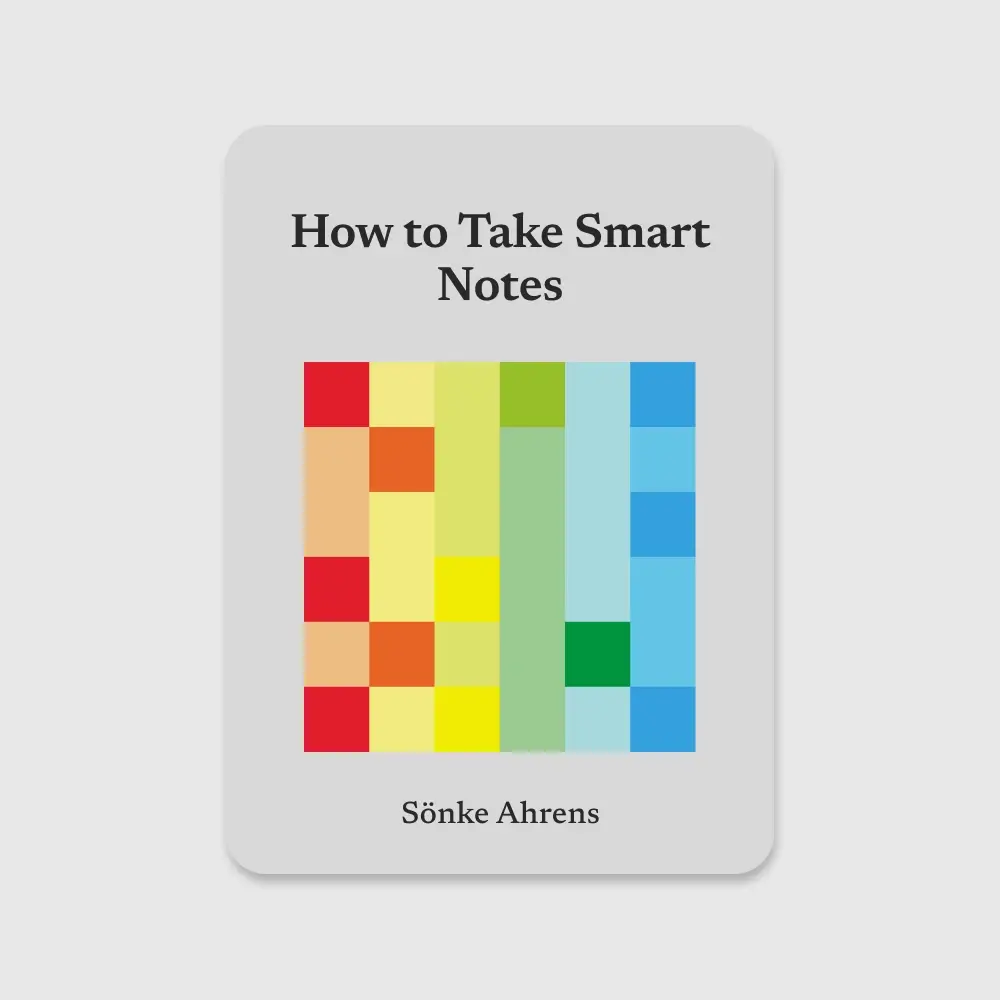
How to Take Smart Notes
🧠 Smart work > Hard work - Success doesn’t come from willpower, but from designing systems that make success inevitable.
📚 Writing is thinking - If you want to understand, remember, or create—write. Your thoughts become clearer the moment they hit the page.
🔄 Feedback loops fuel learning - The more you review and revise, the faster you learn. Writing creates natural feedback and deepens understanding.
🗃️ Zettelkasten = Brain extension - Build a network of notes, not a library of highlights. Use your notes to talk to each other—and to future you.
✍️ Read actively, write aggressively - Don’t highlight. Summarize in your own words. Write as if you’re teaching someone else.
⏳ Don’t multitask. Don’t memorize - Your brain isn’t a USB stick. Free up working memory with trusted systems so you can focus and create.
💡 Creativity = connection - New ideas aren’t magic. They’re made by connecting the dots you’ve already gathered. Your note system helps surface them.
🎯 Structure enables flow - When your environment and tools are frictionless, your focus and motivation skyrocket. Flow follows form.
✏️ First drafts are never final - Writing is rewriting. Don’t stress the start—refinement happens later. Think on paper, revise with clarity.
-
Every task that is interesting, meaningful and well-defined will be done, because there is no conflict between long- and short-term interests.
-
Having a meaningful and well-defined task beats willpower every time. Not having willpower, but not having to use willpower indicates that you set yourself up for success. This is where the organisation of writing and note-taking comes into play.
-
“I never force myself to do anything I don’t feel like. Whenever I am stuck, I do something else.” A good structure allows you to do that, to move seamlessly from one task to another – without threatening the whole arrangement or losing sight of the bigger picture.
-
A good structure is something you can trust. It relieves you from the burden of remembering and keeping track of everything.
-
If you can trust the system, you can let go of the attempt to hold everything together in your head and you can start focusing on what is important: The content, the argument and the ideas.
-
A good structure enables flow, the state in which you get so completely immersed in your work that you lose track of time and can just keep on going as the work becomes effortless.
-
Routines require simple, repeatable tasks that can become automatic and fit together seamlessly.
-
The second idea is equally important. Even the best tool will not improve your productivity considerably if you don’t change your daily routines the tool is embedded in, just as the fastest car won’t help you much if you don’t have proper roads to drive it on.
-
And this is the other insight of David Allen: Only if you can trust your system, only if you really know that everything will be taken care of, will your brain let go and let you focus on the task at hand.
-
Even hard work can be fun as long as it is aligned with our intrinsic goals and we feel in control.
-
Studies on highly successful people have proven again and again that success is not the result of strong willpower and the ability to overcome resistance, but rather the result of smart working environments that avoid resistance in the first place
-
Everybody is motivated when the finish line is within reach.
-
Writing is, without dispute, the best facilitator for thinking, reading, learning, understanding and generating ideas we have.
-
If you want to learn something for the long run, you have to write it down.
-
If you want to really understand something, you have to translate it into your own words. Thinking takes place as much on paper as in your own head.
-
If we write, it is more likely that we understand what we read, remember what we learn and that our thoughts make sense.
-
Whenever you read something, make notes about the content. Write down what you don’t want to forget or think you might use in your own thinking or writing. Keep it very short, be extremely selective, and use your own words.
-
Deliberate practice is the only serious way of becoming better at what we are doing.
-
We tend to think that big transformations have to start with an equally big idea. But more often than not, it is the simplicity of an idea that makes it so powerful.
-
Feedback loops are not only crucial for the dynamics of motivation, but also the key element to any learning process. Nothing motivates us more than the experience of becoming better at what we do. And the only chance to improve in something is getting timely and concrete feedback.
-
When we think we multitask, what we really do is shift our attention quickly between two (or more) things. And every shift is a drain on our ability to shift and delays the moment we manage to get focused again. Trying to multitask fatigues us and decreases our ability to deal with more than one task.
-
The moment we stop making plans is the moment we start to learn.
-
Because trainees lack the experience to judge a situation correctly and confidently, they need to stick to the rules they were taught, much to the delight of their teachers.
-
Experts, on the other hand, have internalised the necessary knowledge so they don’t have to actively remember rules or think consciously about their choices. They have acquired enough experience in various situations to be able to rely on their intuition to know what to do in which kind of situation. Their decisions in complex situations are explicitly not made by long rational-analytical considerations, but rather come from the gut.
-
Gut feeling is not a mysterious force, but an incorporated history of experience. It is the sedimentation of deeply learned practice through numerous feedback loops on success or failure.
-
The more experience you gain, the more you will be able to rely on your intuition to tell you what to do next.
-
We can hold a maximum of seven things in our head at the same time, plus/minus two.
-
Information cannot be saved in short-term memory like on a memory stick. Rather, it kind of floats around in our heads, seeks our attention and occupies valuable mental resources until it is either forgotten, replaced by something more important (according to our brains) or moved into long-term memory.
-
“I would advise you to read with a pen in your hand and enter in a little book short hints of what you feel that is common or that may be useful; for this will be the best method of imprinting such portcullis in your memory.” – Benjamin Franklin
-
It is after reading and collecting relevant data, connecting thoughts and discussing how they fit together that it is time to draw conclusions and develop a linear structure for the argument.
“If you can’t say it clearly, you don’t understand it yourself.” (John Searle)
-
We can only improve our learning if we test ourselves on our progress.
-
Learning requires effort, because we have to think to understand and we need to actively retrieve old knowledge to convince our brains to connect it with new ideas as cues.
-
Taking literature notes is a form of deliberate practice as it gives us feedback on our understanding or lack of it, while the effort to put into our own words the gist of something is at the same time the best approach to understanding what we read.
-
Learned right, which means understanding, which means connecting in a meaningful way to previous knowledge, information almost cannot be forgotten anymore and will be reliably retrieved if triggered by the right cues.
-
“Every note is just an element in the network of references and back references in the system, from which it gains its quality.”
-
The brain is very good at making associations and spotting patterns and similarities between seemingly different things and also very good in spotting differences between seemingly similar things, but it needs to have them presented objectively and externally. It is much easier to see differences and similarities than to detect them by mere thinking.
-
A truly wise person is not someone who knows everything, but someone who is able to make sense of things by drawing from an extended resource of interpretation schemes.
-
This stands in harsh contrast to the common but not-so-wise belief that we need to learn from experience. It is much better to learn from the experiences of others – especially when this experience is reflected on and turned into versatile “mental models” that can be used in different situations.
-
“By learning, retaining, and building on the retained basics, we are creating a rich web of associated information. The more we know, the more information (hooks) we have to connect new information to, the easier we can form long-term memories.
“Creativity is just connecting things. When you ask creative people how they did something, they feel a little guilty because they didn’t really do it, they just saw something.” -Steve Jobs
-
Intuition is not the opposition to rationality and knowledge, it is rather the incorporated, practical side of our intellectual endeavours, the sedimented experience on which we build our conscious, explicit knowledge.
-
Innovation is not the result of a sudden moment of realization, anyway, but incremental steps toward improvement. Even groundbreaking paradigm shifts are most often the consequence of many small moves in the right direction instead of one big idea. This is why the search for small differences is key.
-
The brain is more likely to notice details when it scans than when it focuses.
“Creative people are better at recognizing relationships, making associations and connections and seeing things in an original way—seeing things that others cannot see“ (Andreasen 2014).
-
Creativity cannot be taught like a rule or approached like a plan. But we can make sure that our working environment allows us to be creative with ideas.
-
Problems rarely get solved directly, anyway. Most often, the crucial step forward is to redefine the problem in such a way that an already existing solution can be employed. The first question should always be directed towards the question itself: What kind of answer can you expect from asking a question in this particular way? What is missing?
-
The brain more easily remembers information that it encountered recently, which has emotions attached to it and is lively, concrete or specific.
-
The more time an artist devotes to learning about an aesthetic “problem,” the more unexpected and creative his solution will be regarded later by art experts.
-
It is not just about feeling in control, it is about setting up the work in a way that we really are in control. And the more control we have to steer our work towards what we consider interesting and relevant, the less willpower we have to put into getting things done. Only then can work itself become the source of motivation, which is crucial to make it sustainable.
-
Organizing the work so we can steer our projects in the most promising direction not only allows us to stay focused for longer, but also to have more fun – and that is a fact.
-
According to the famous law of Parkinson, every kind of work tends to fill the time we set aside for it, like air fills every corner of a room.
-
Zeigarnik effect , in which our brains tend to stay occupied with a task until it is accomplished (or written down).
-
If there is one piece of advice that is worth giving, it is to keep in mind that the first draft is only the first draft.
